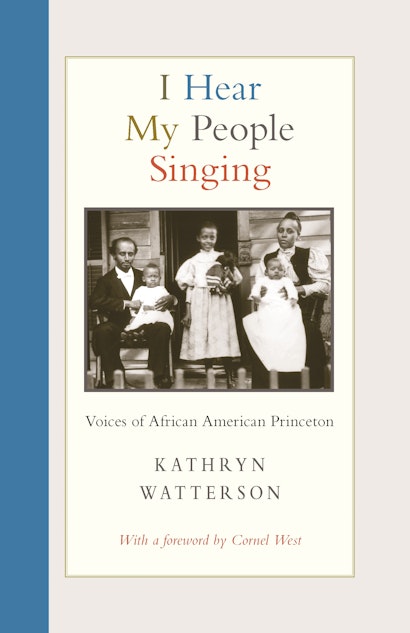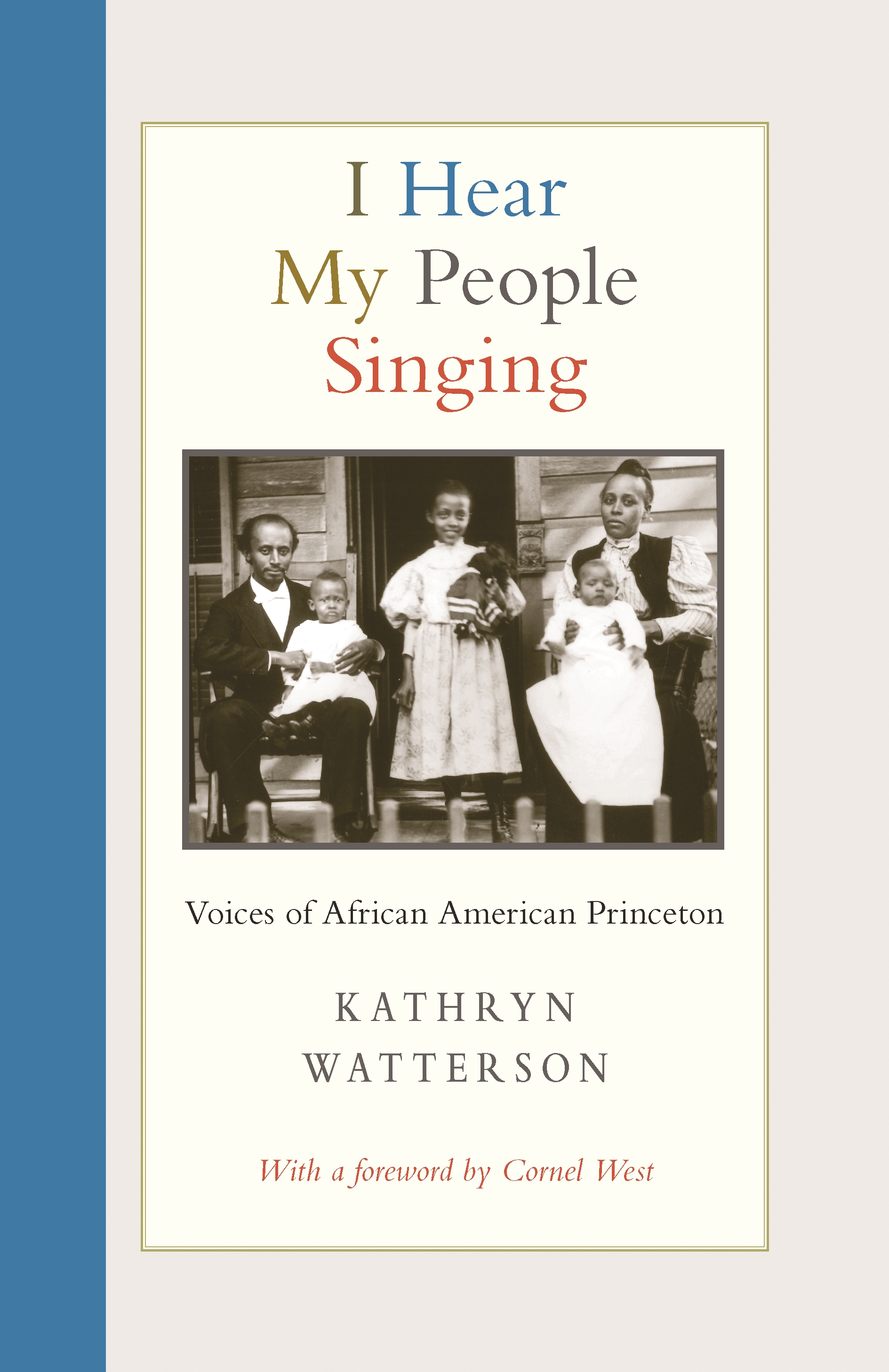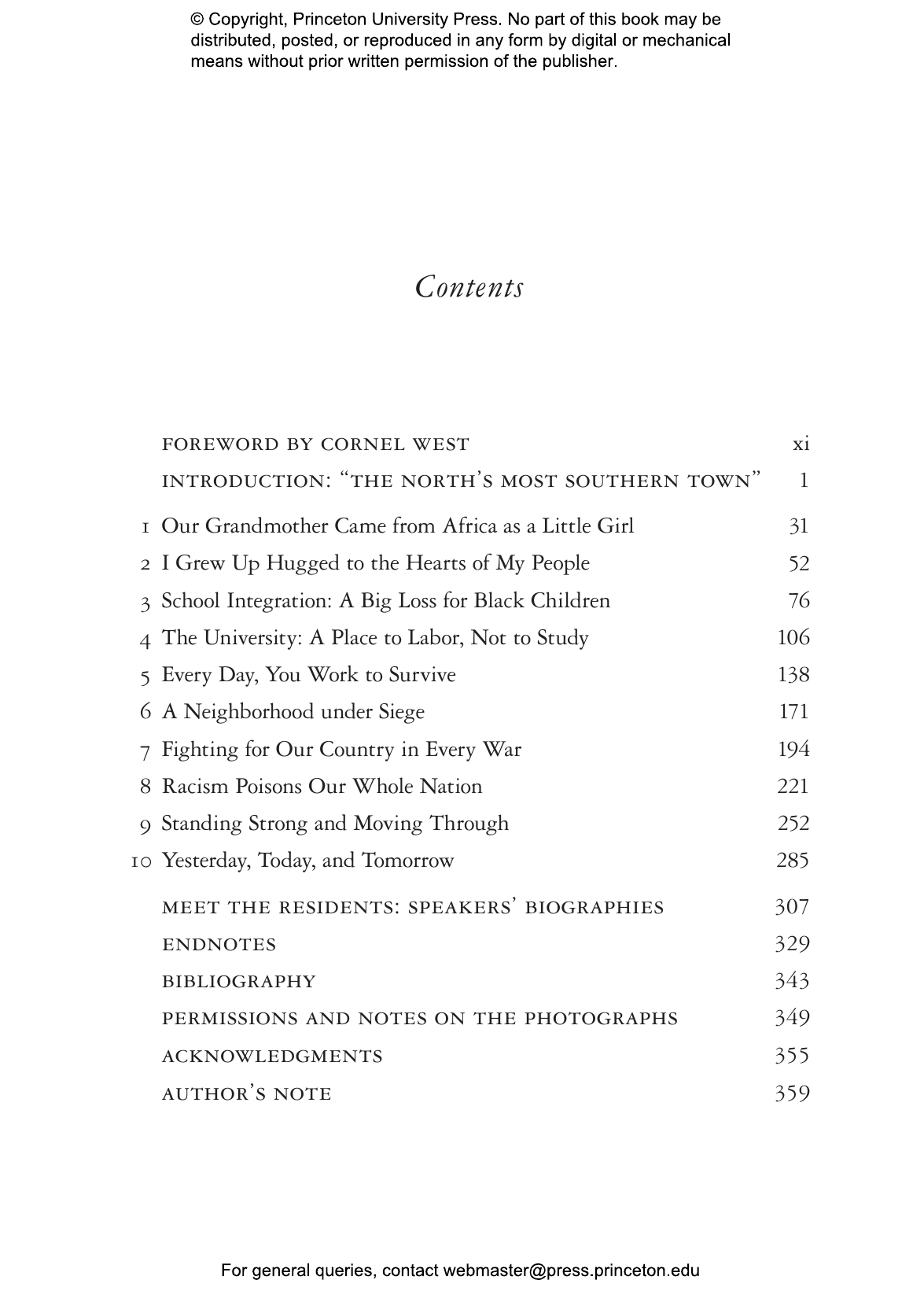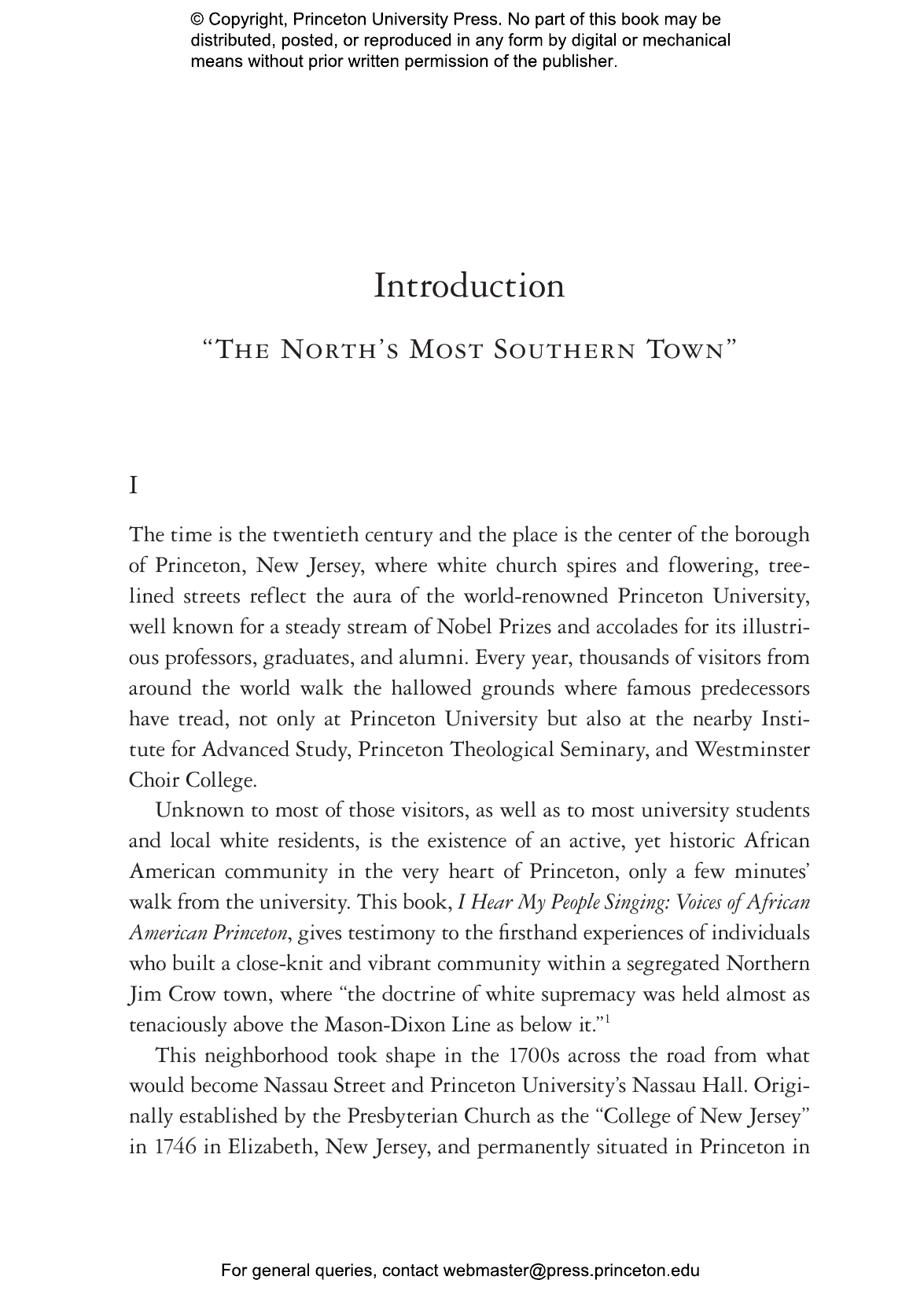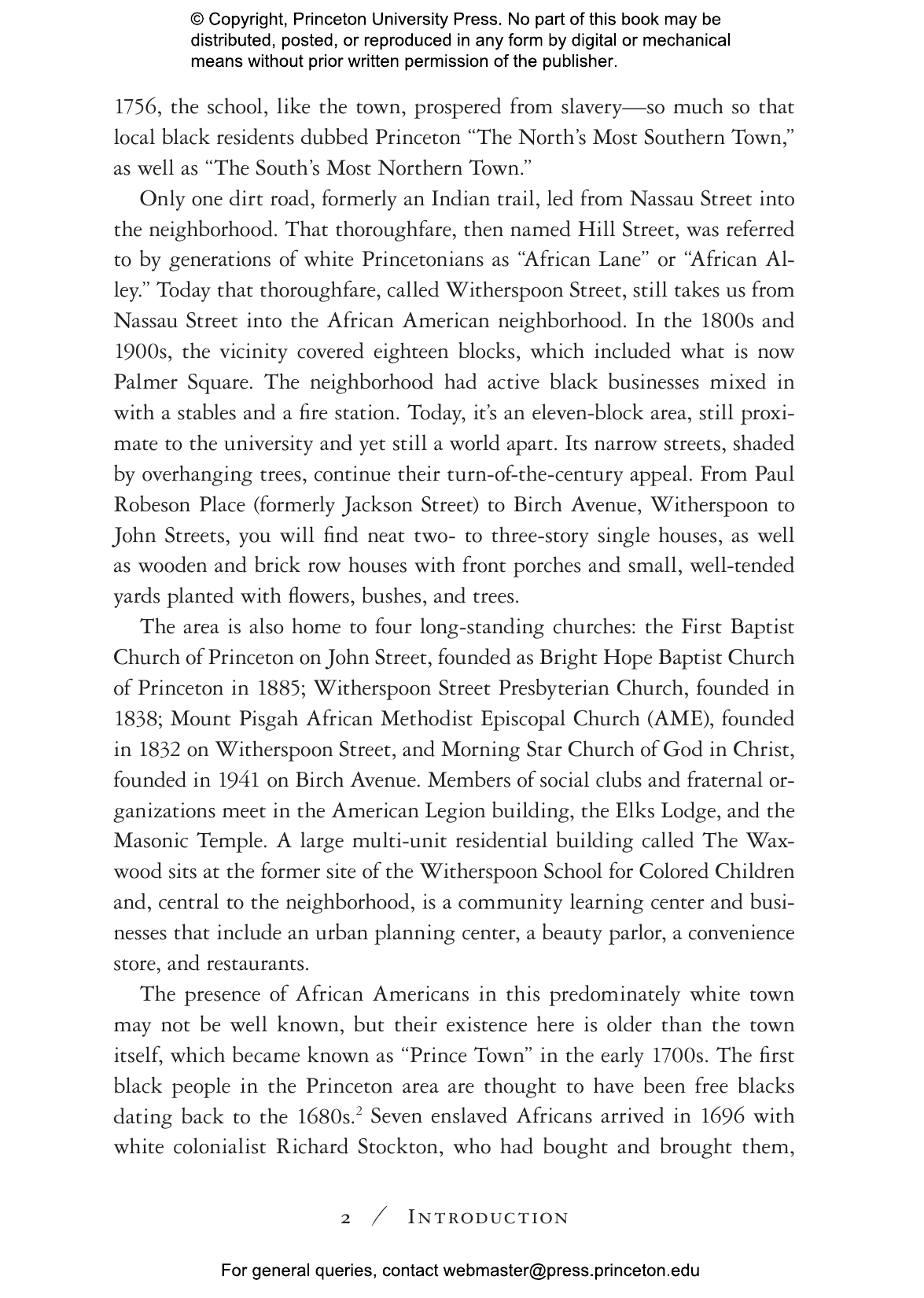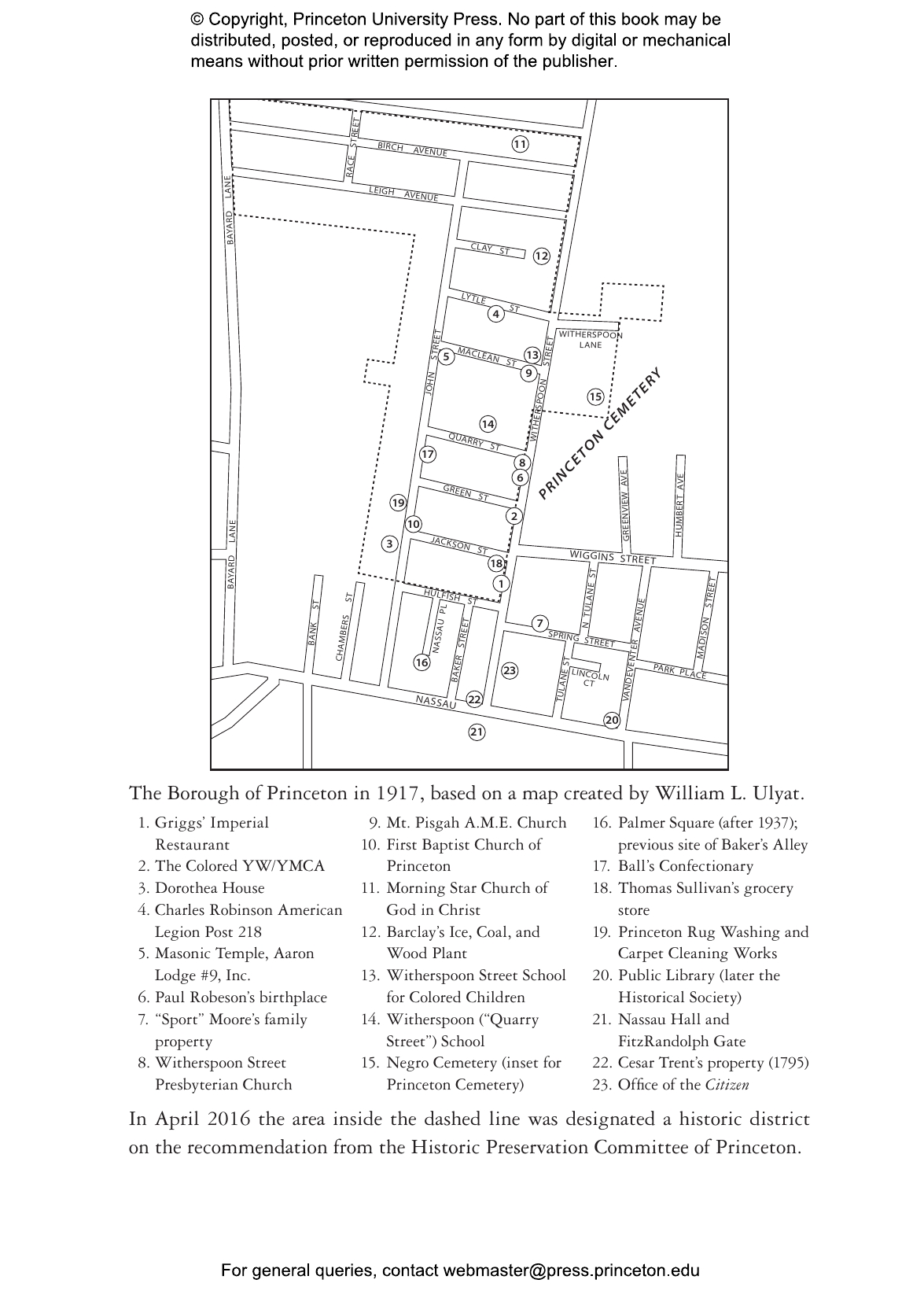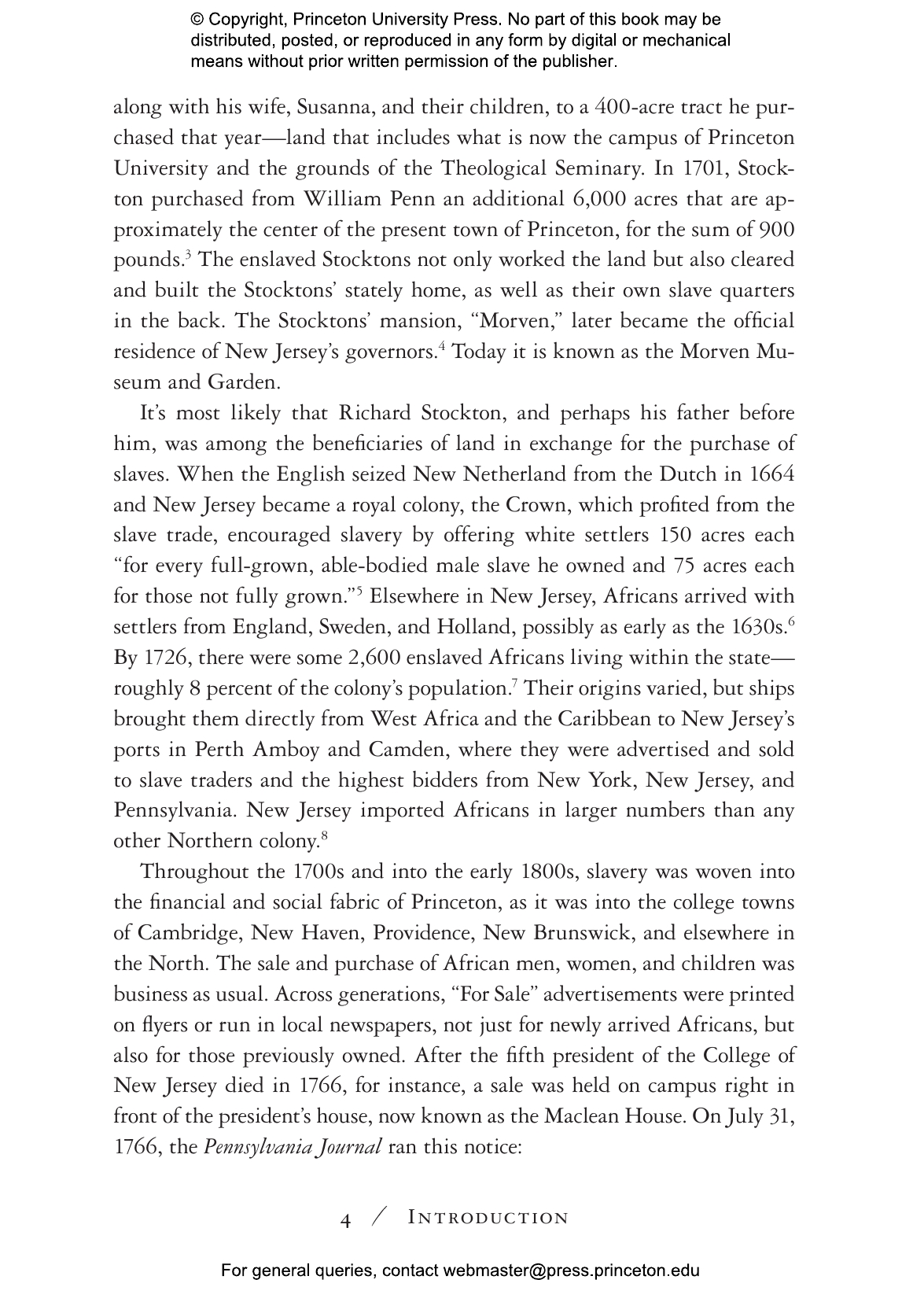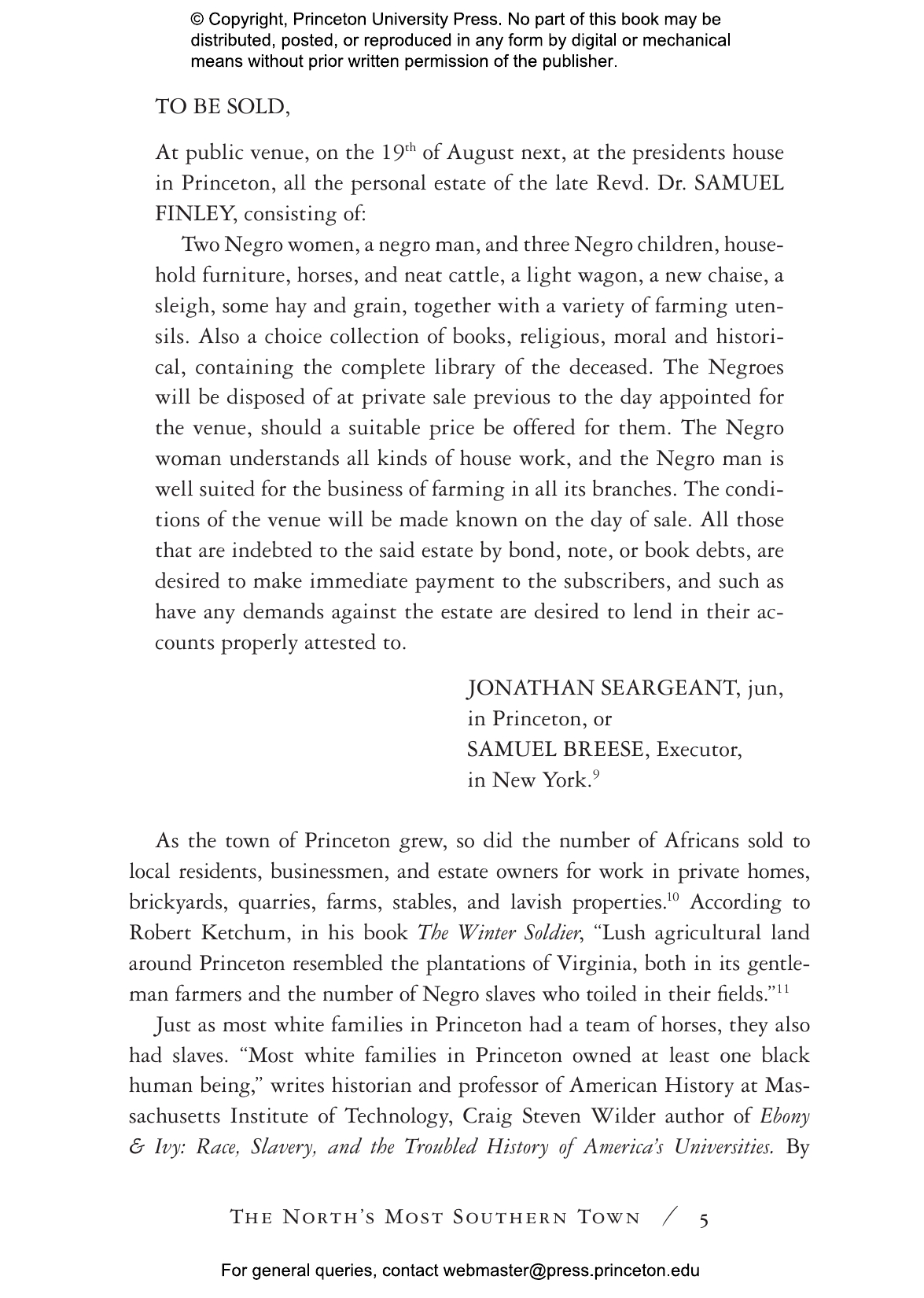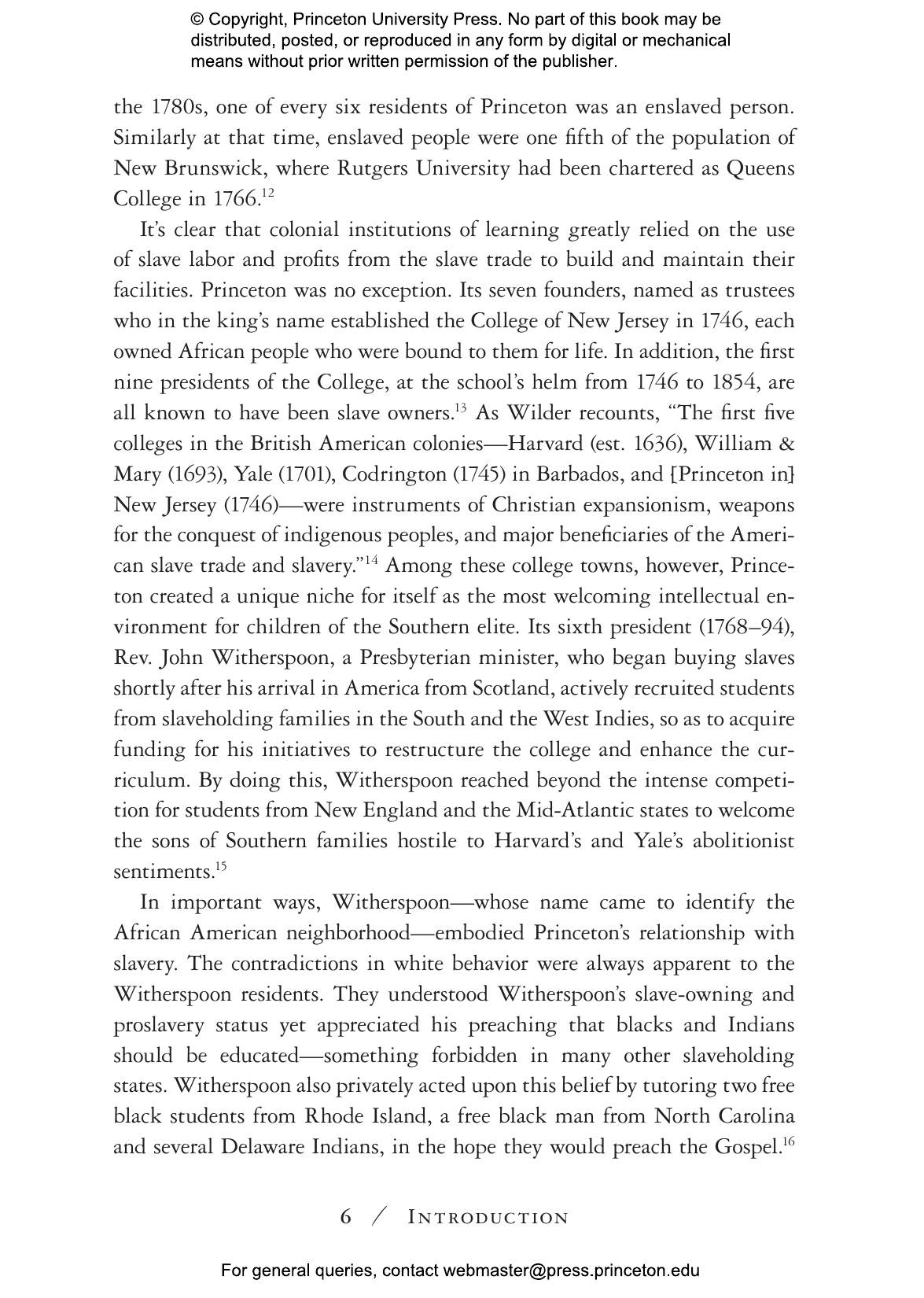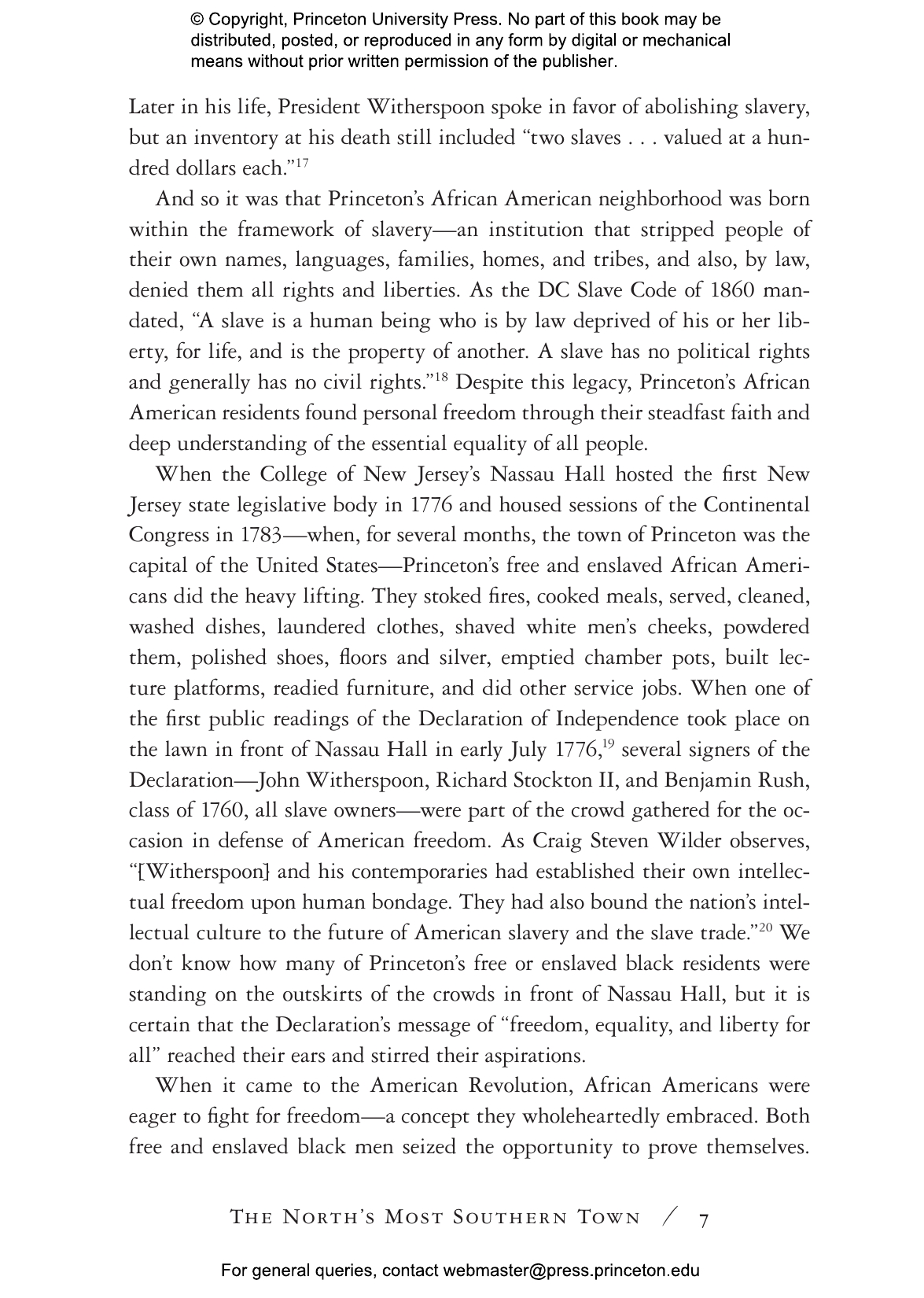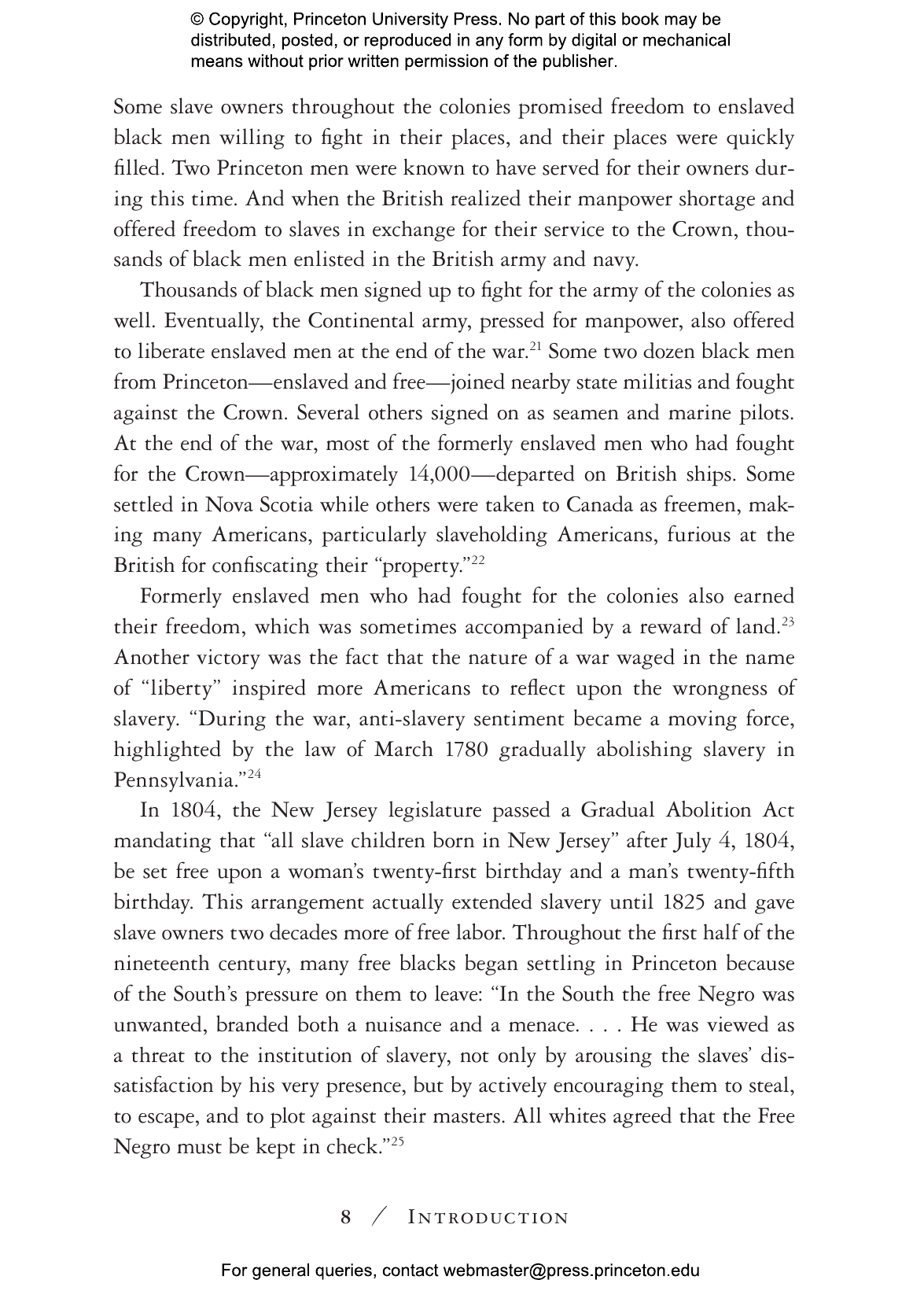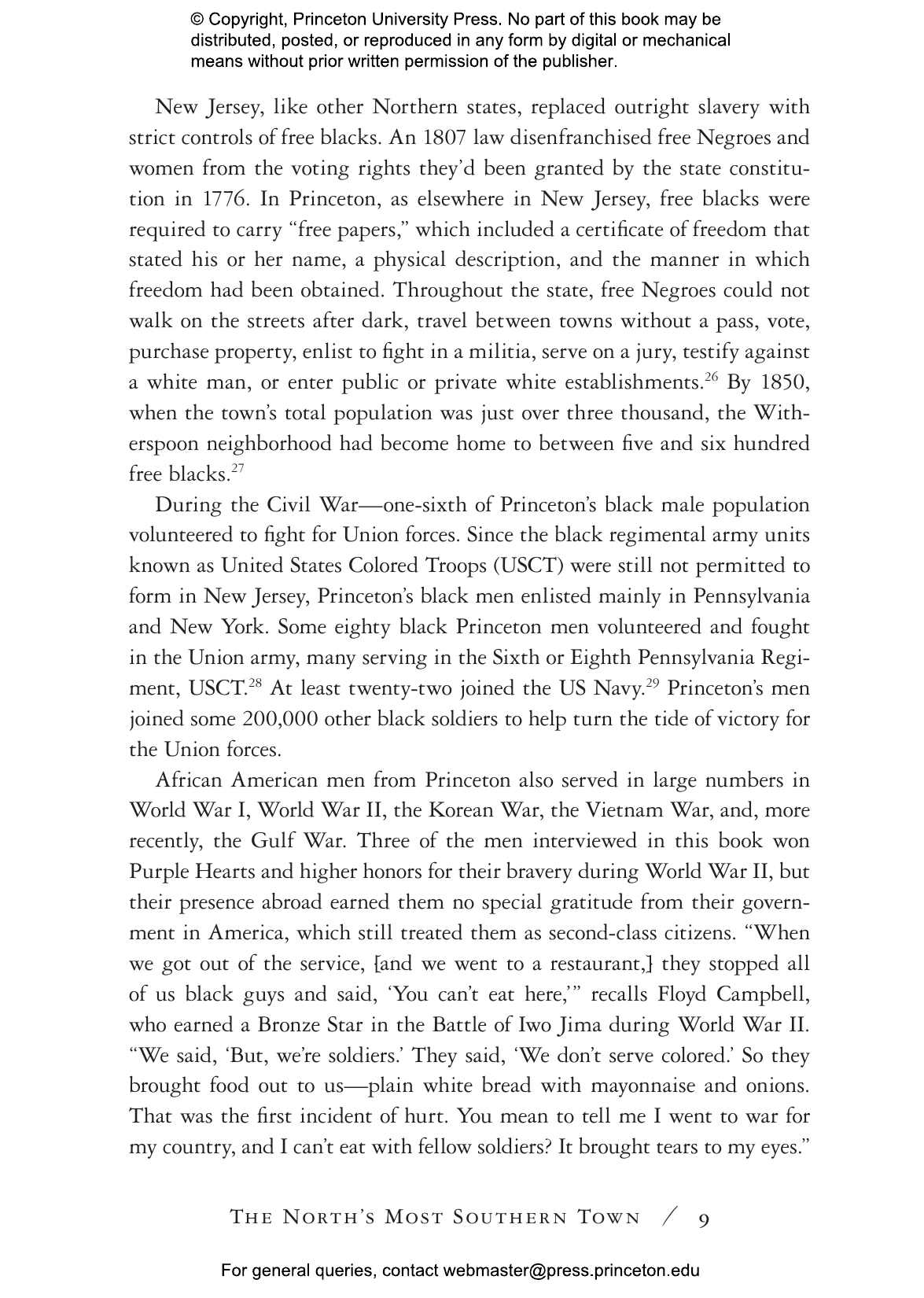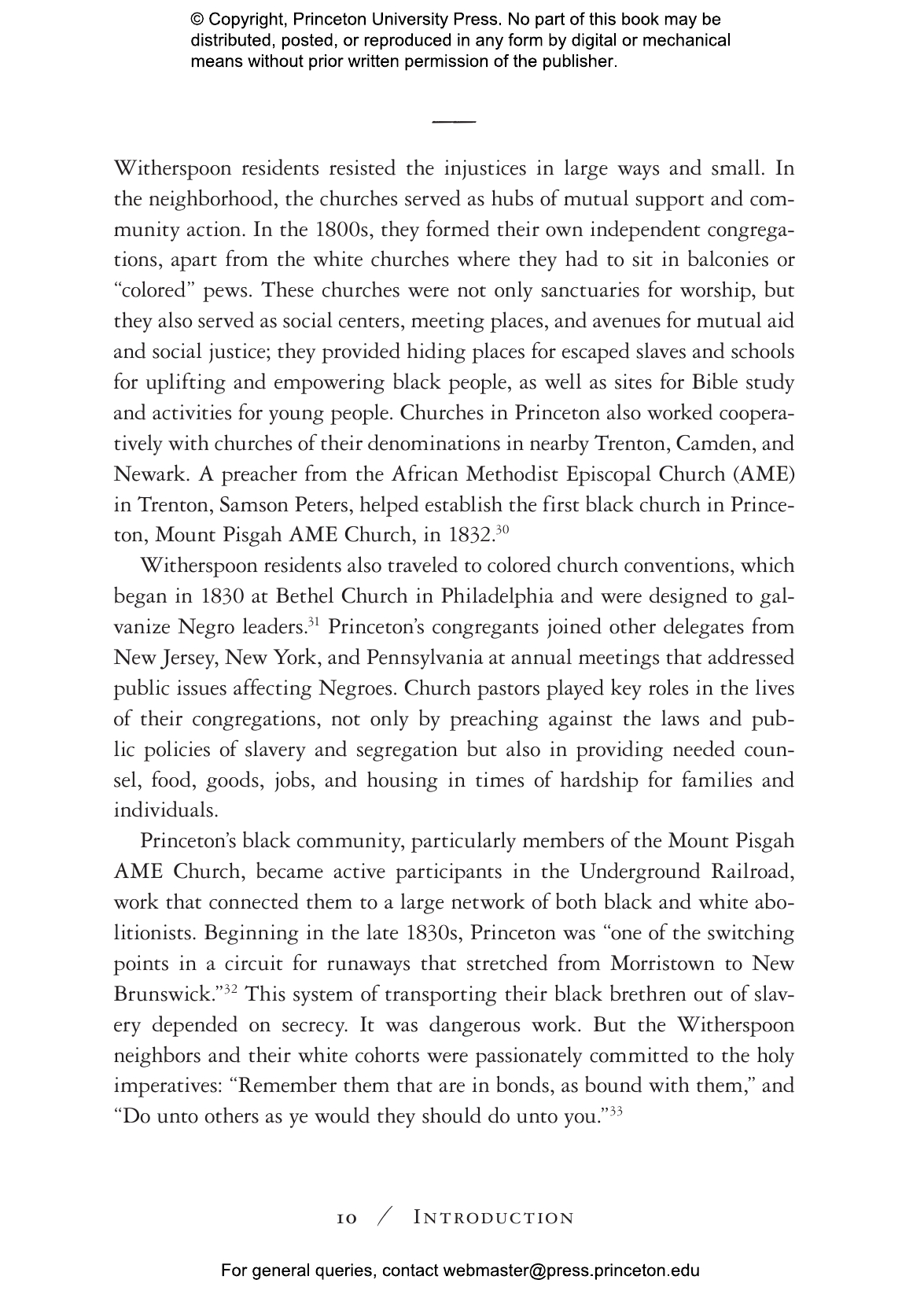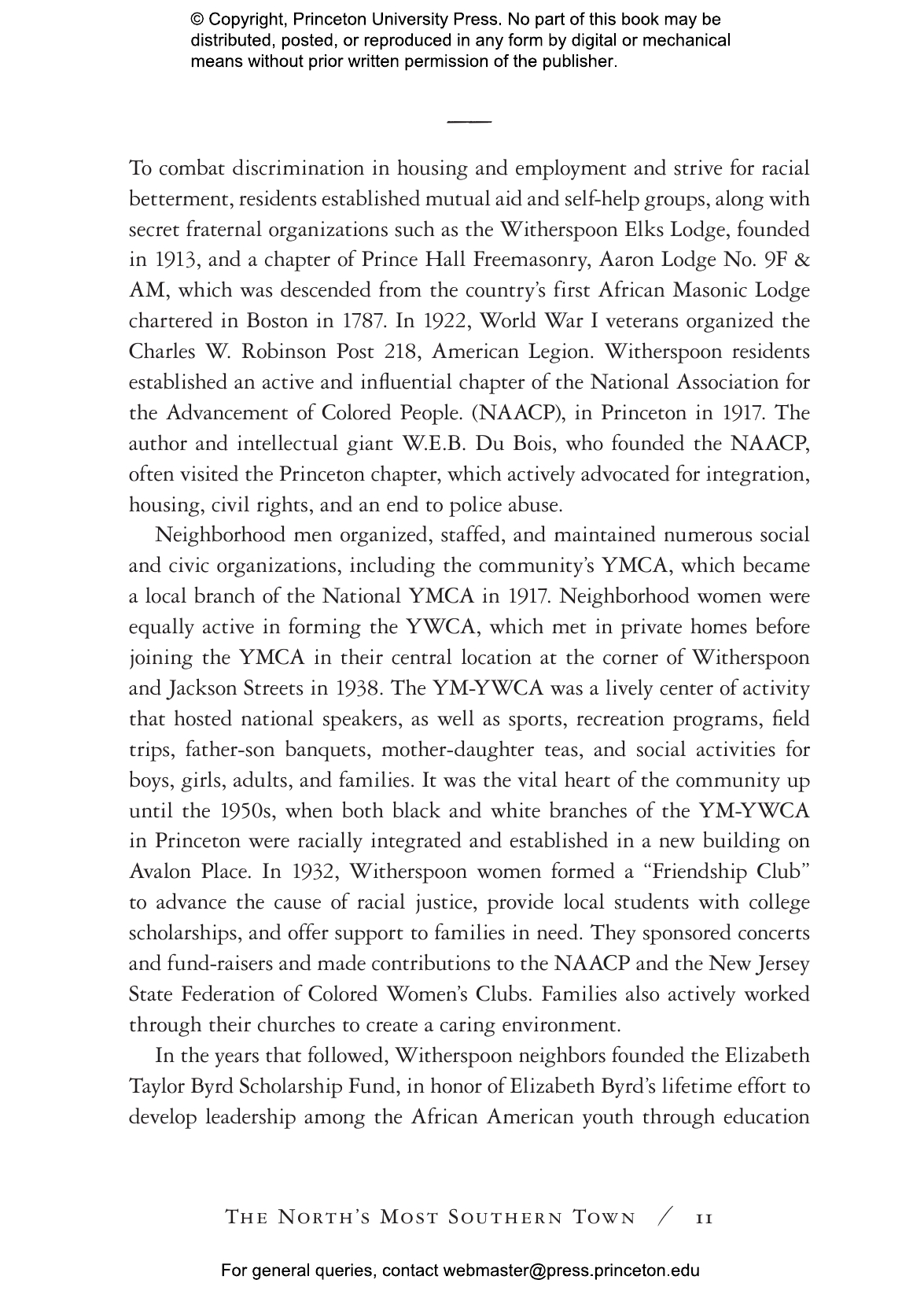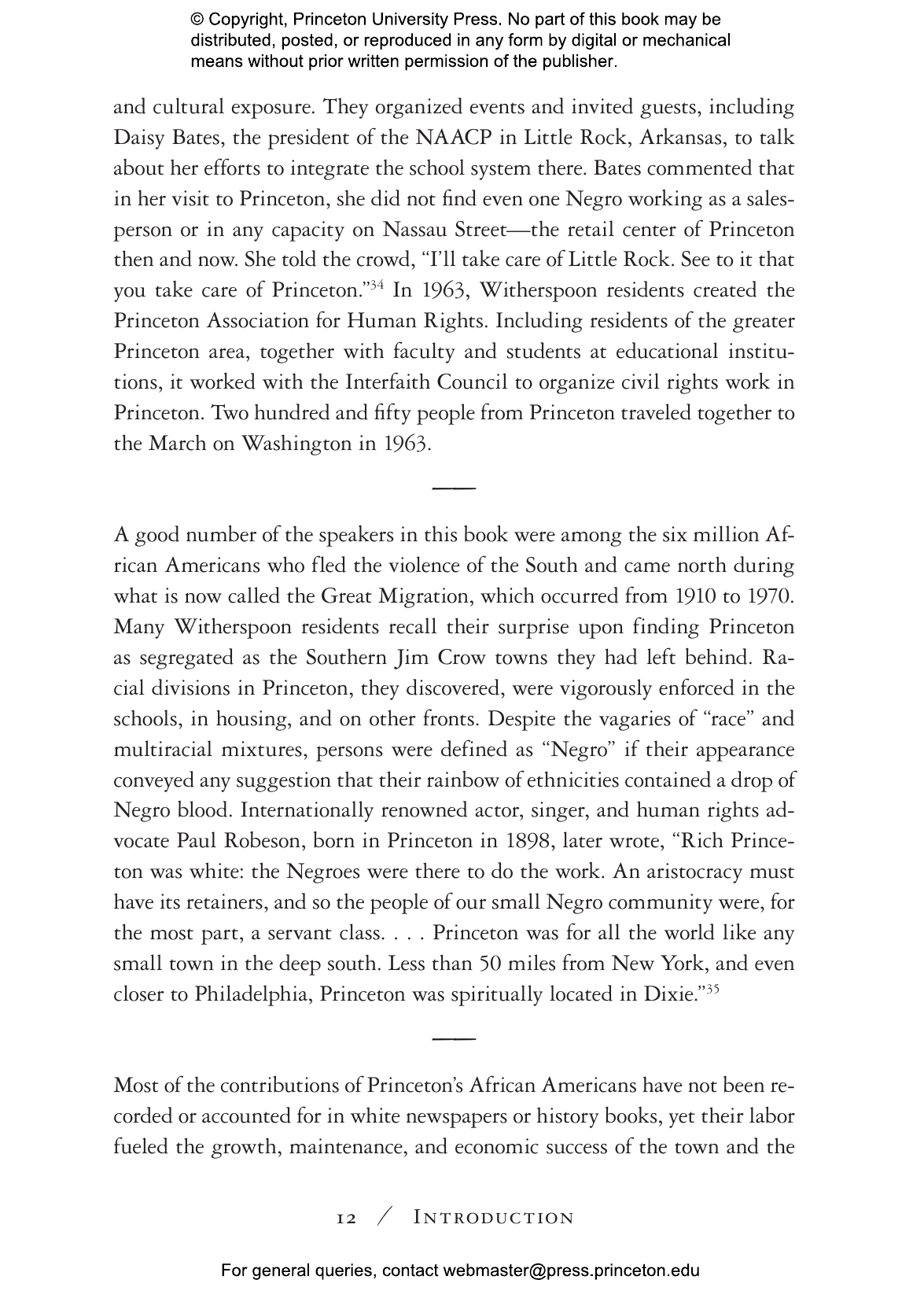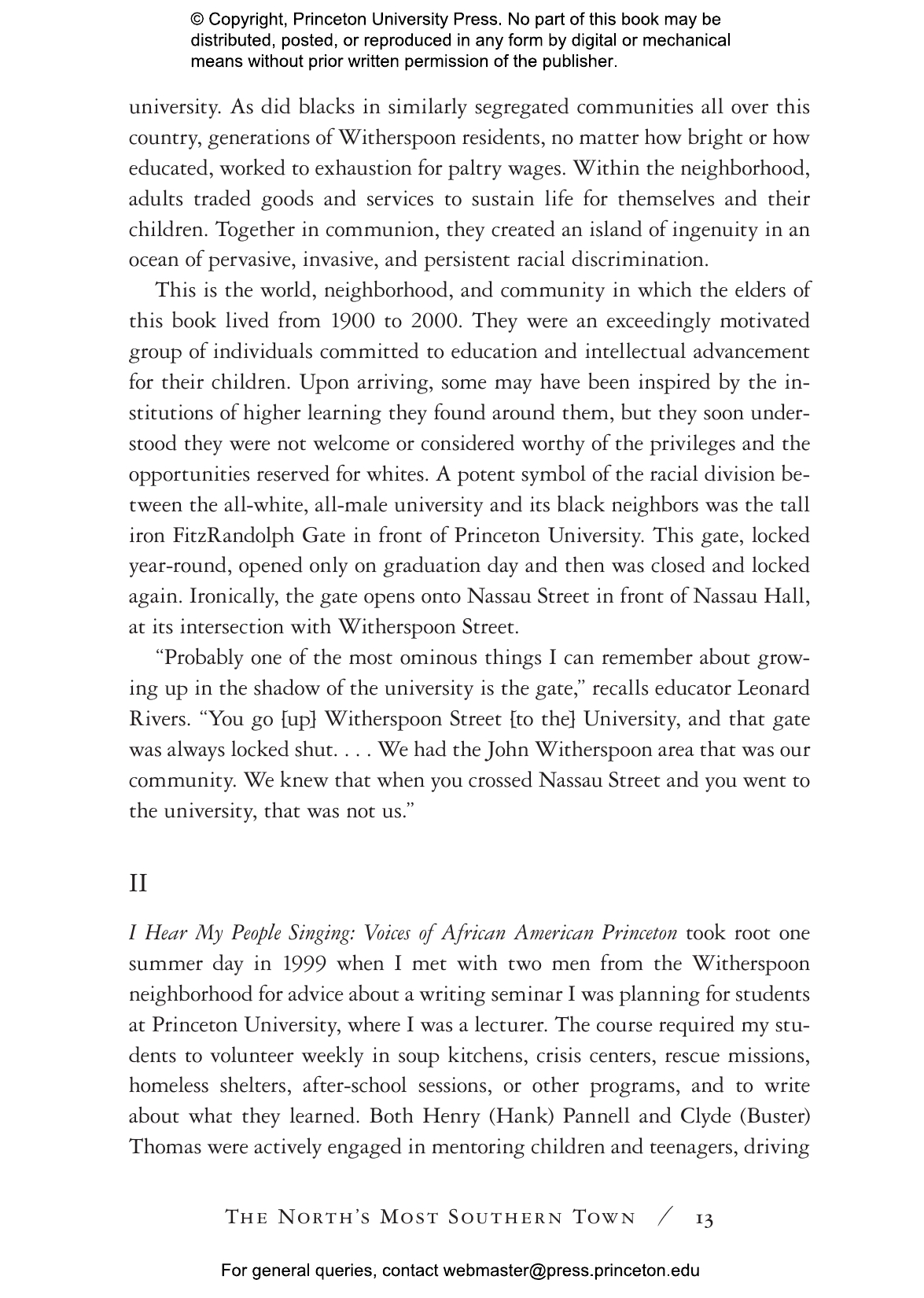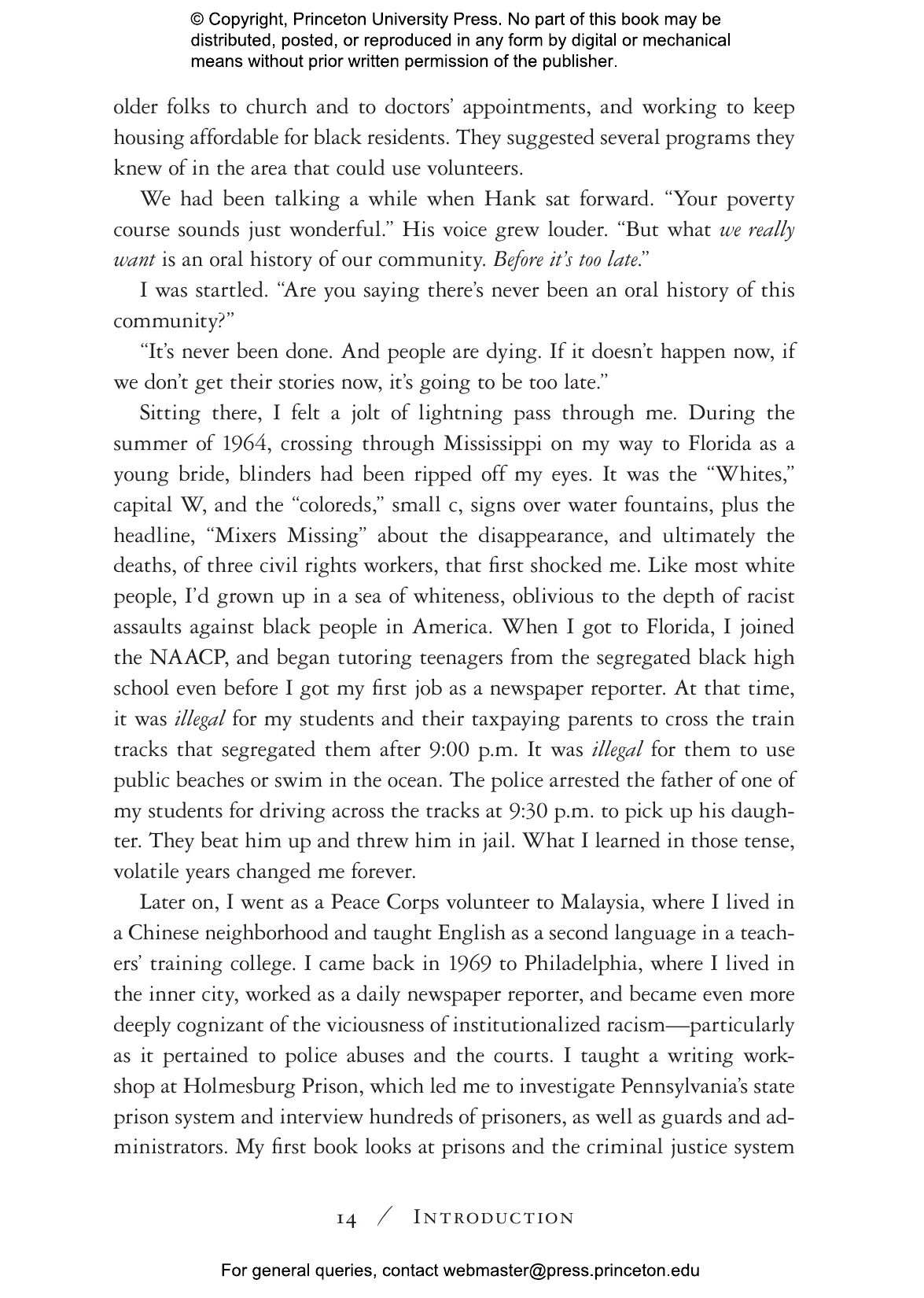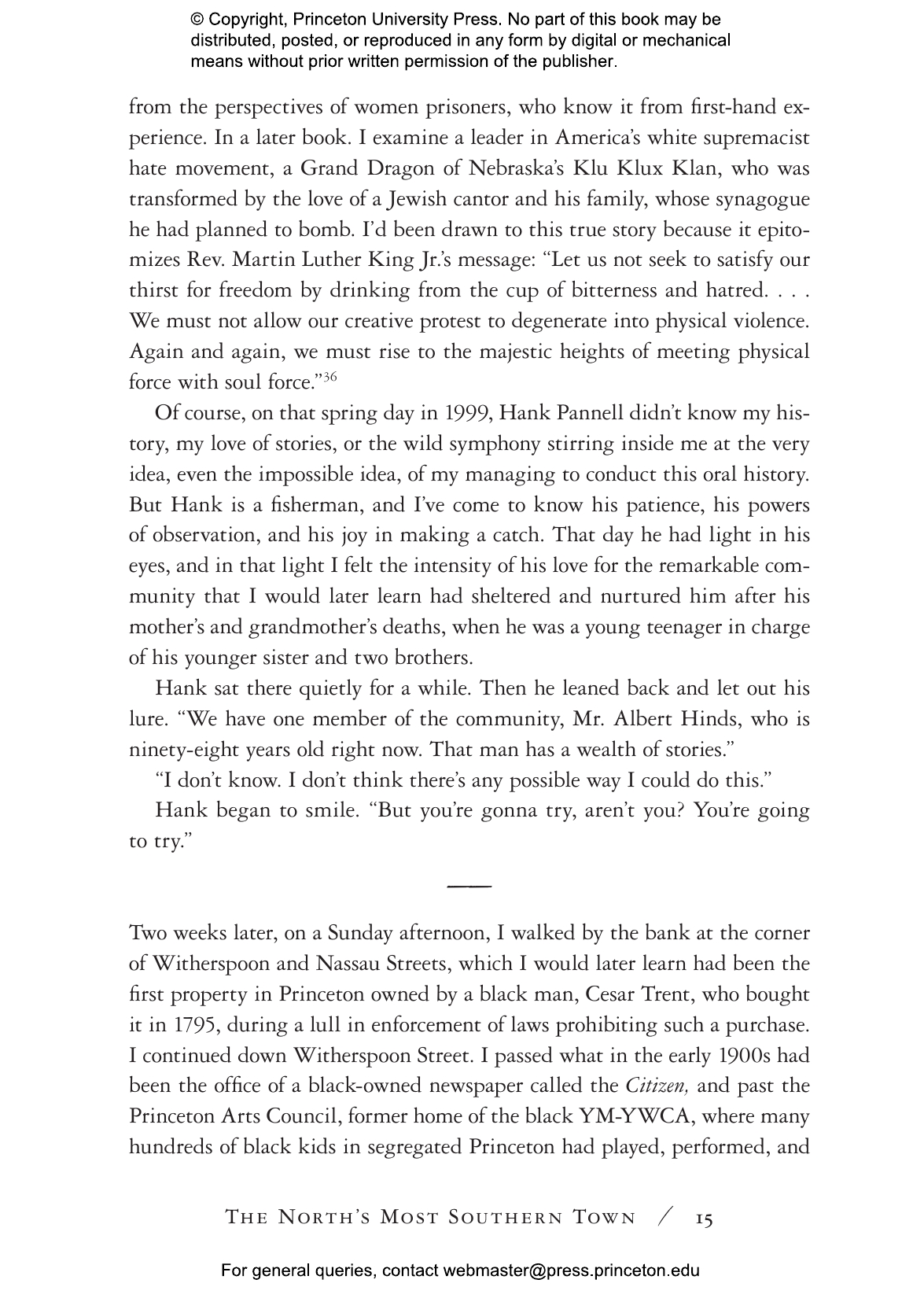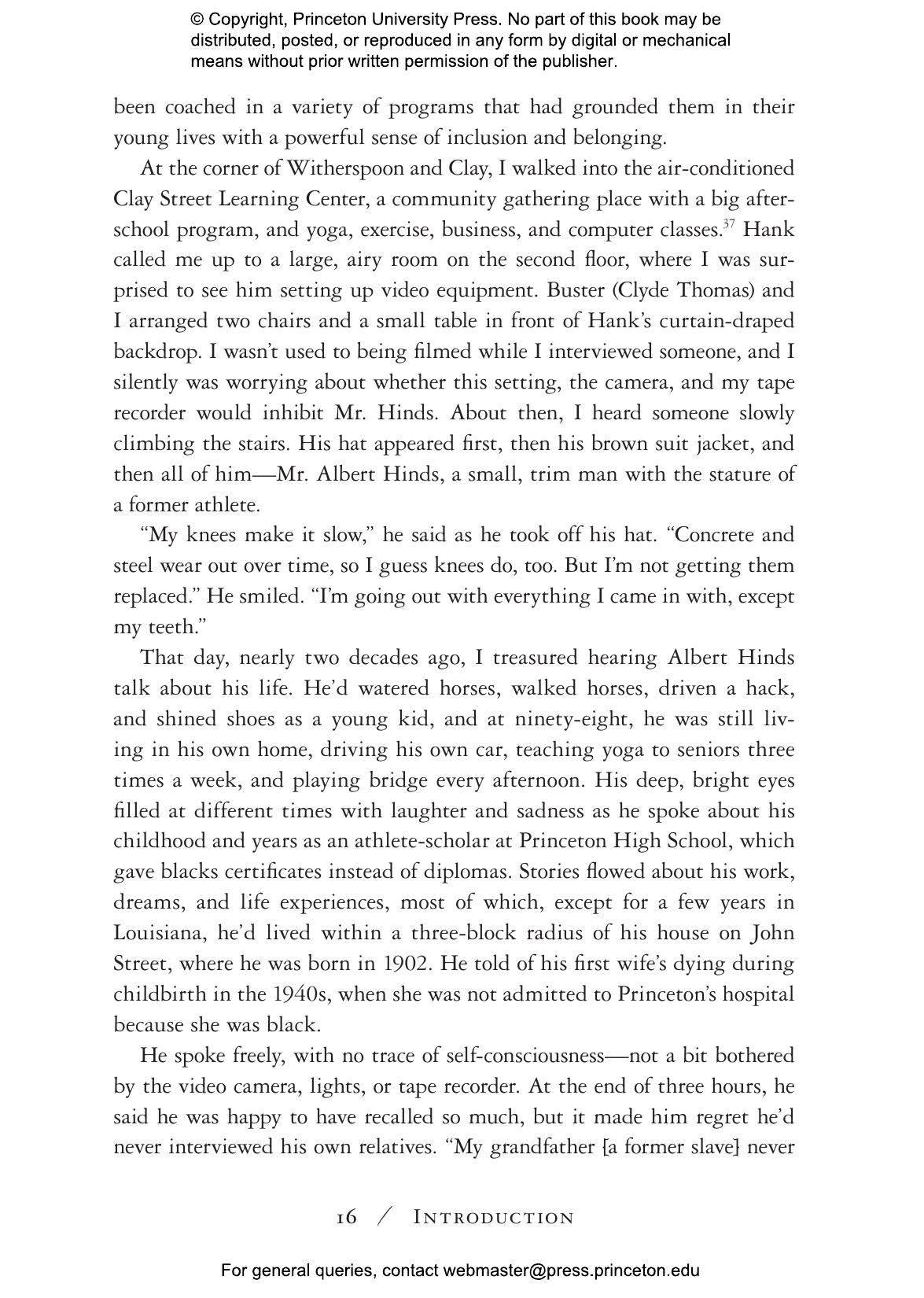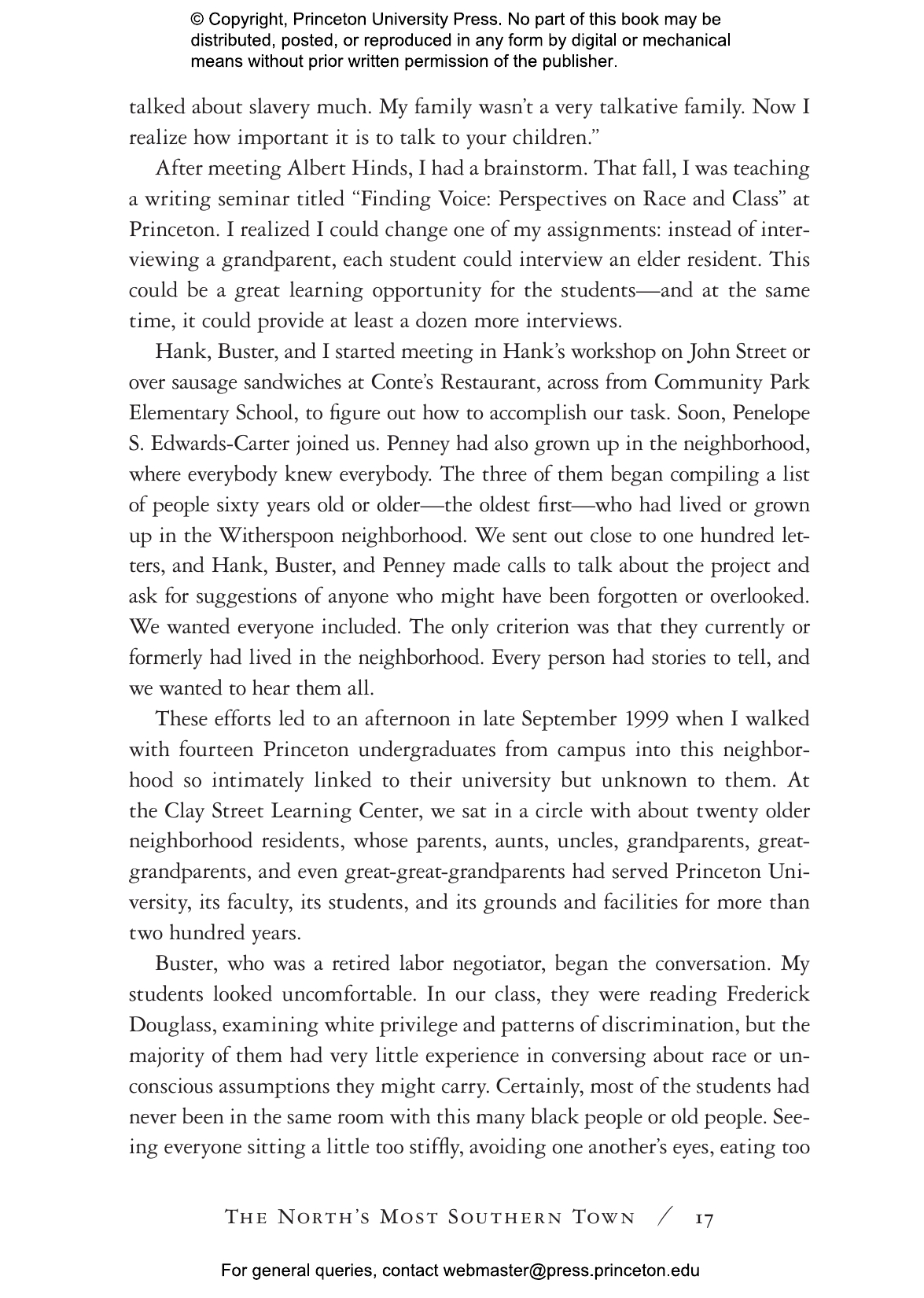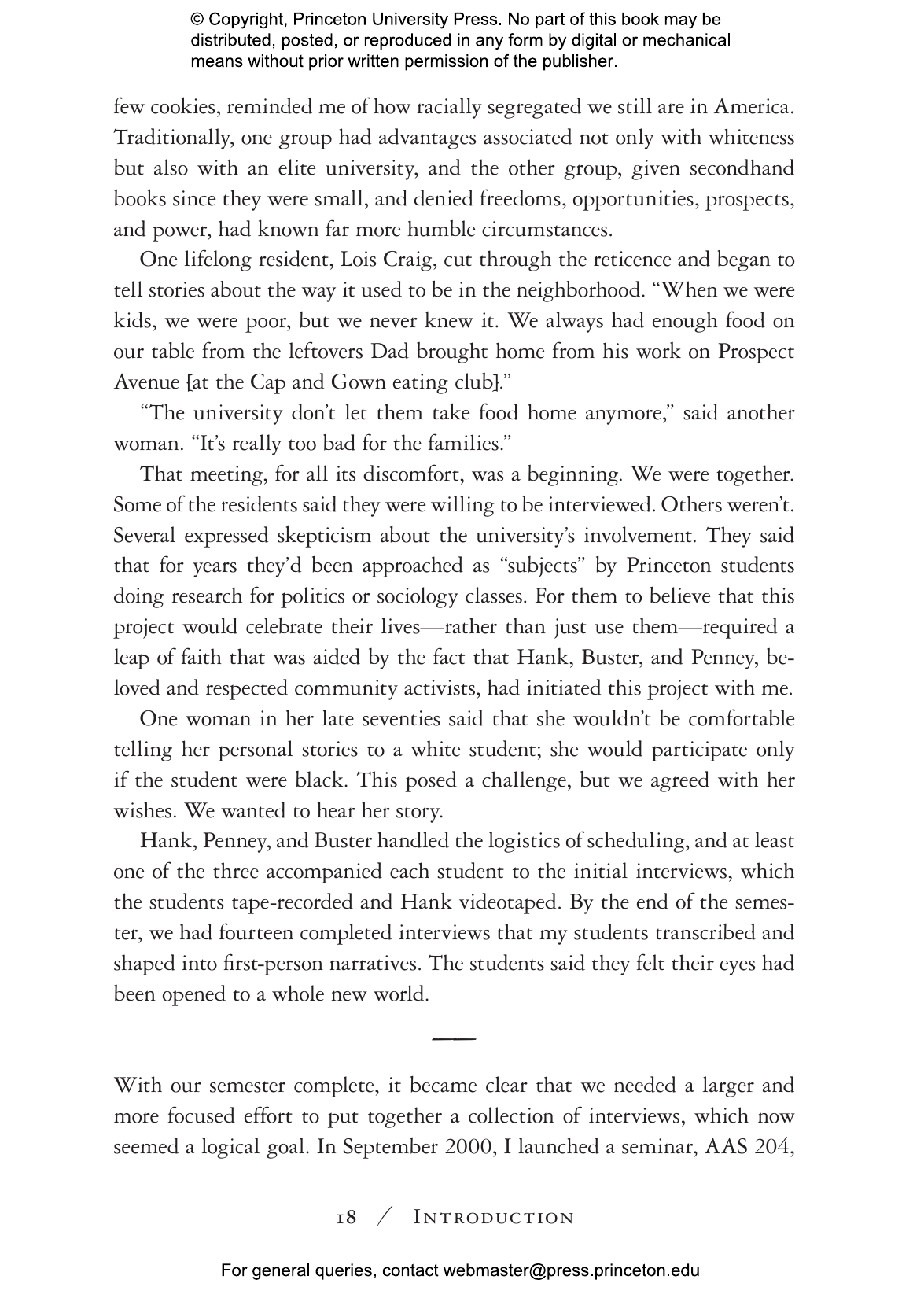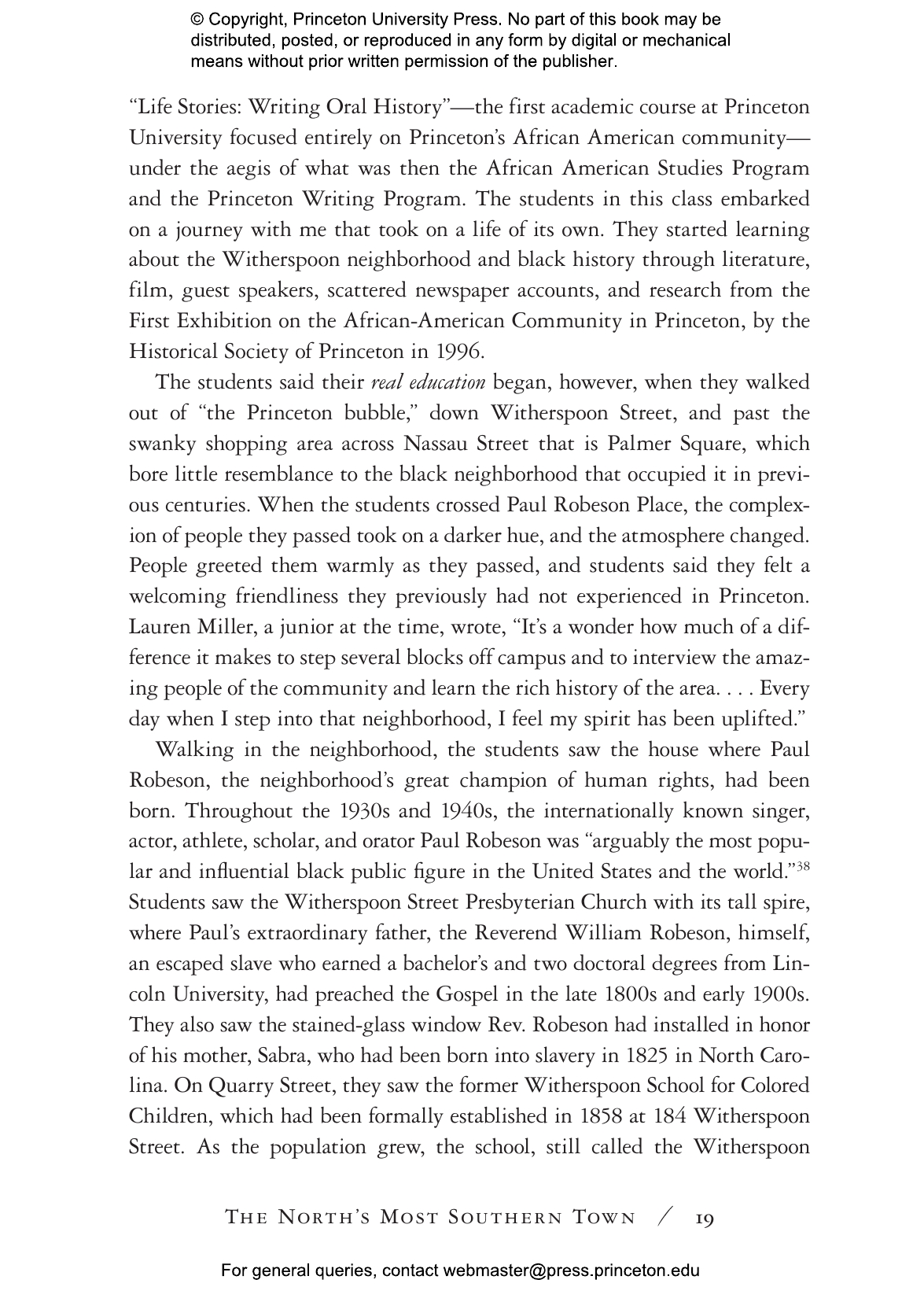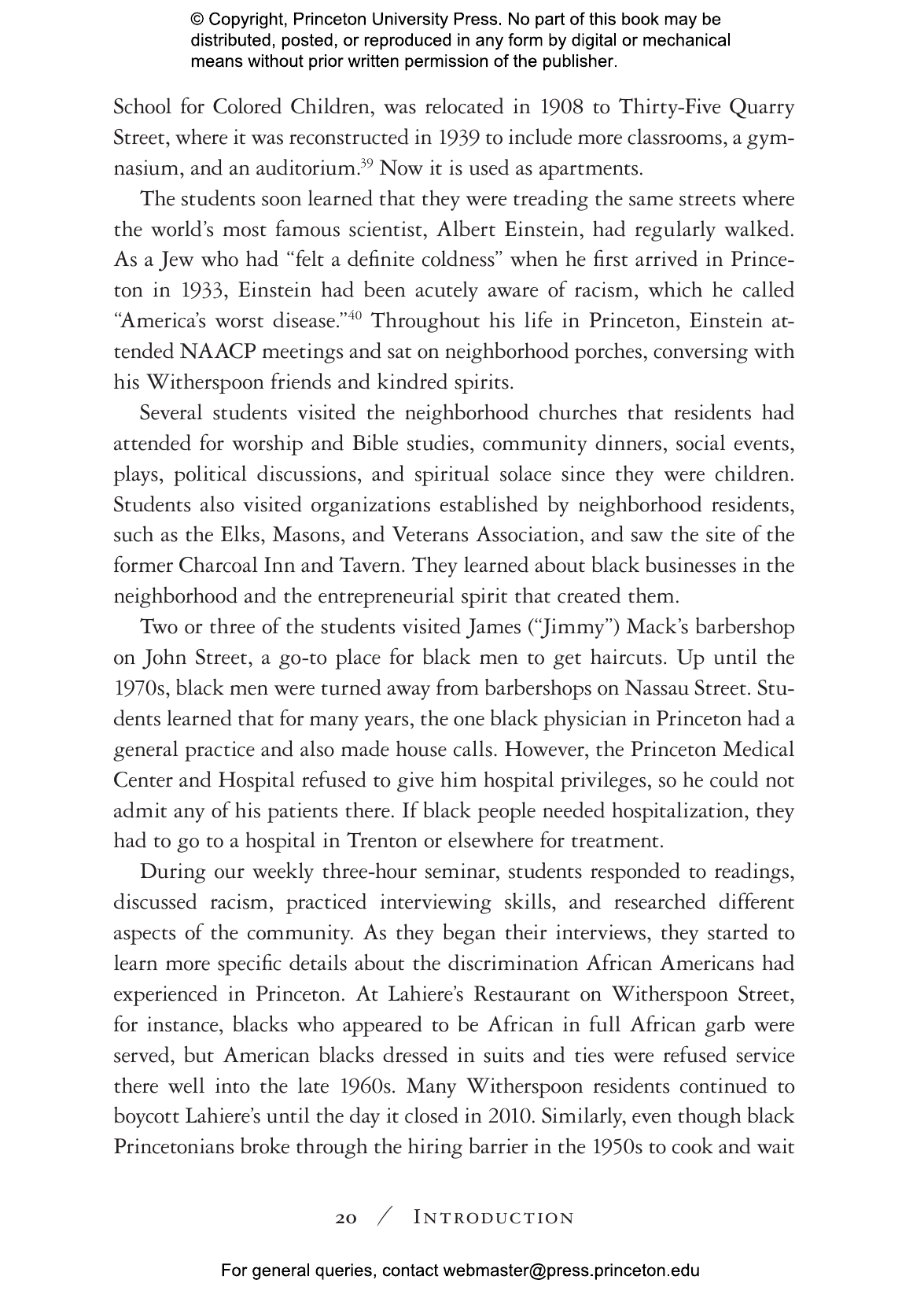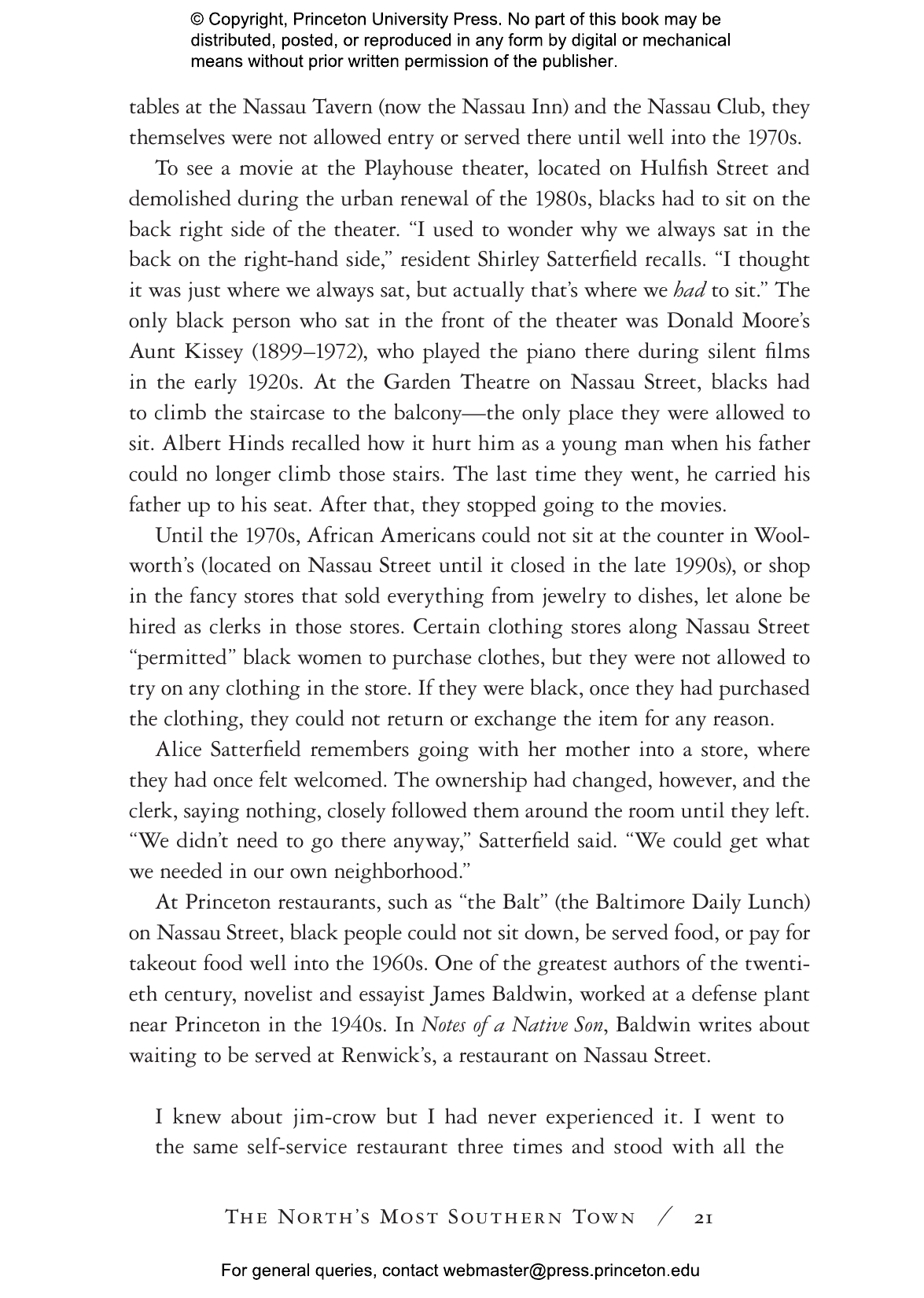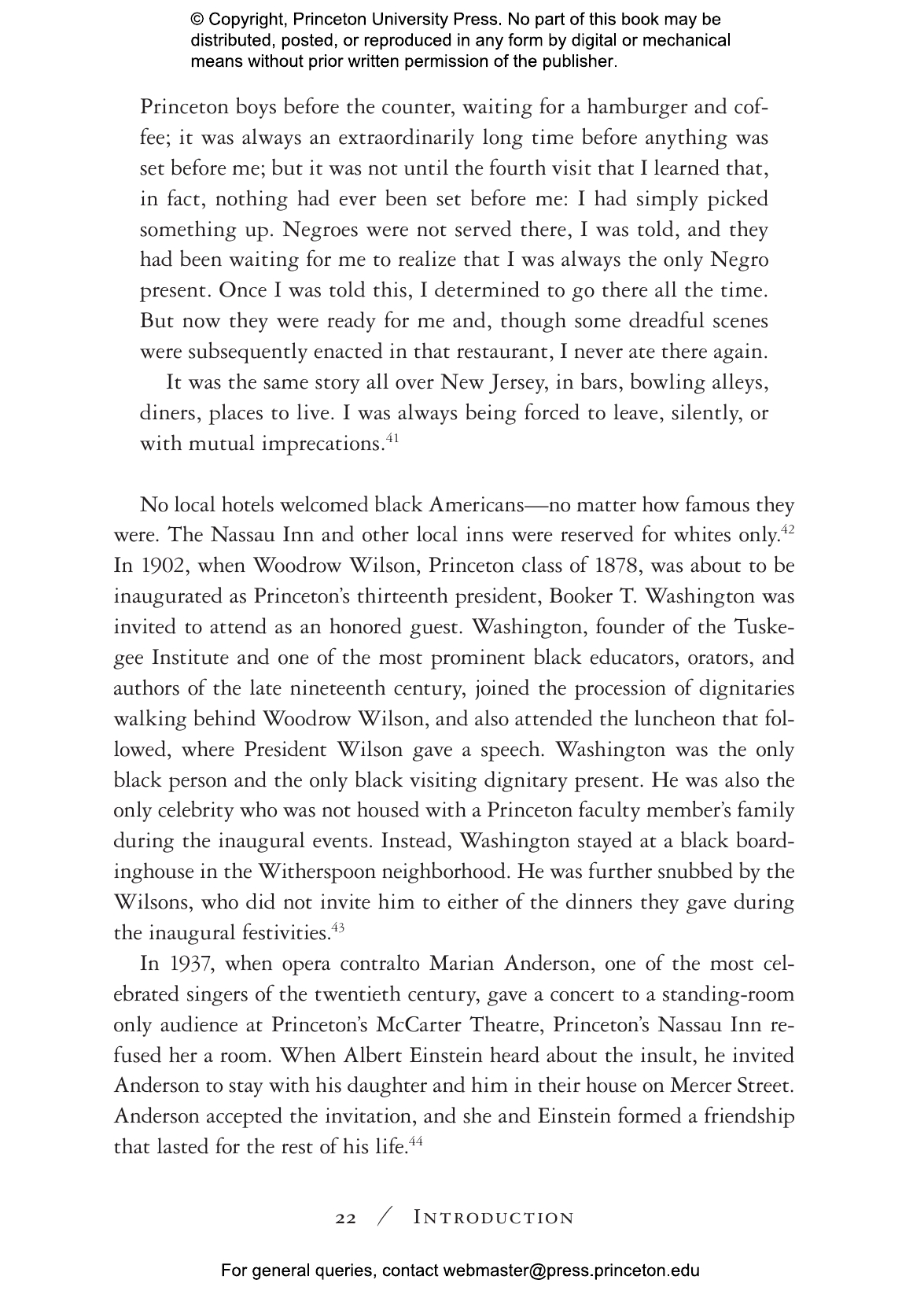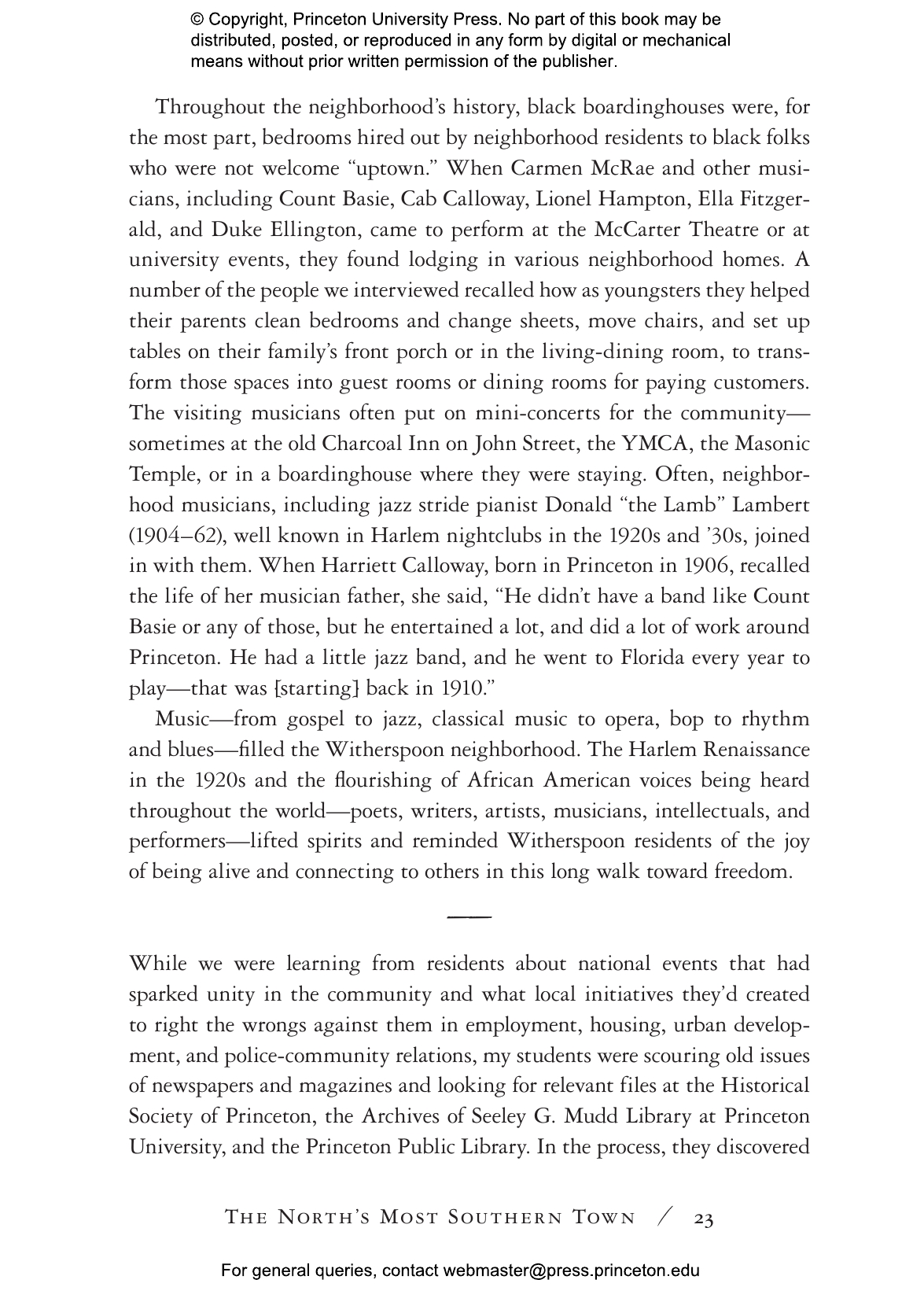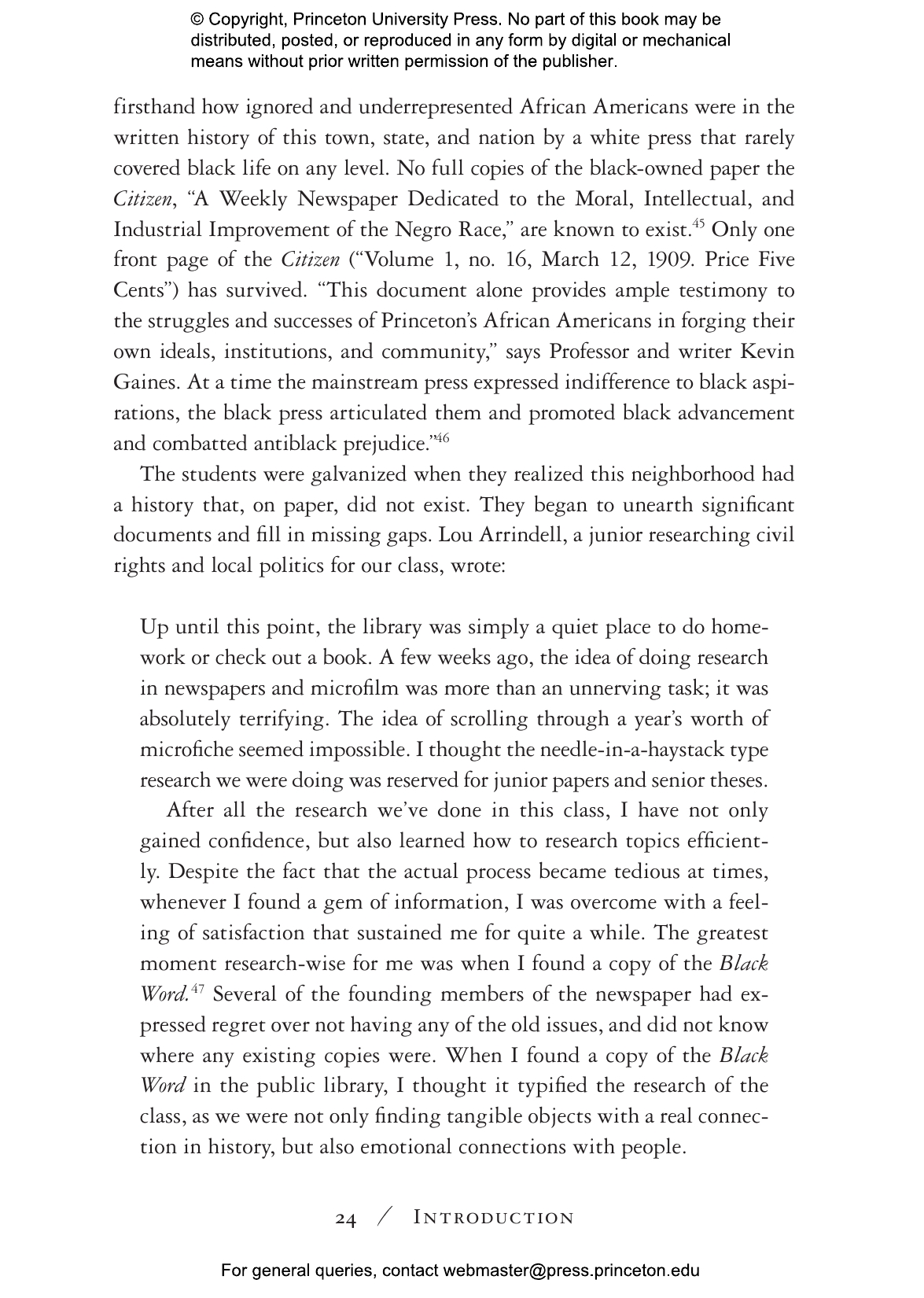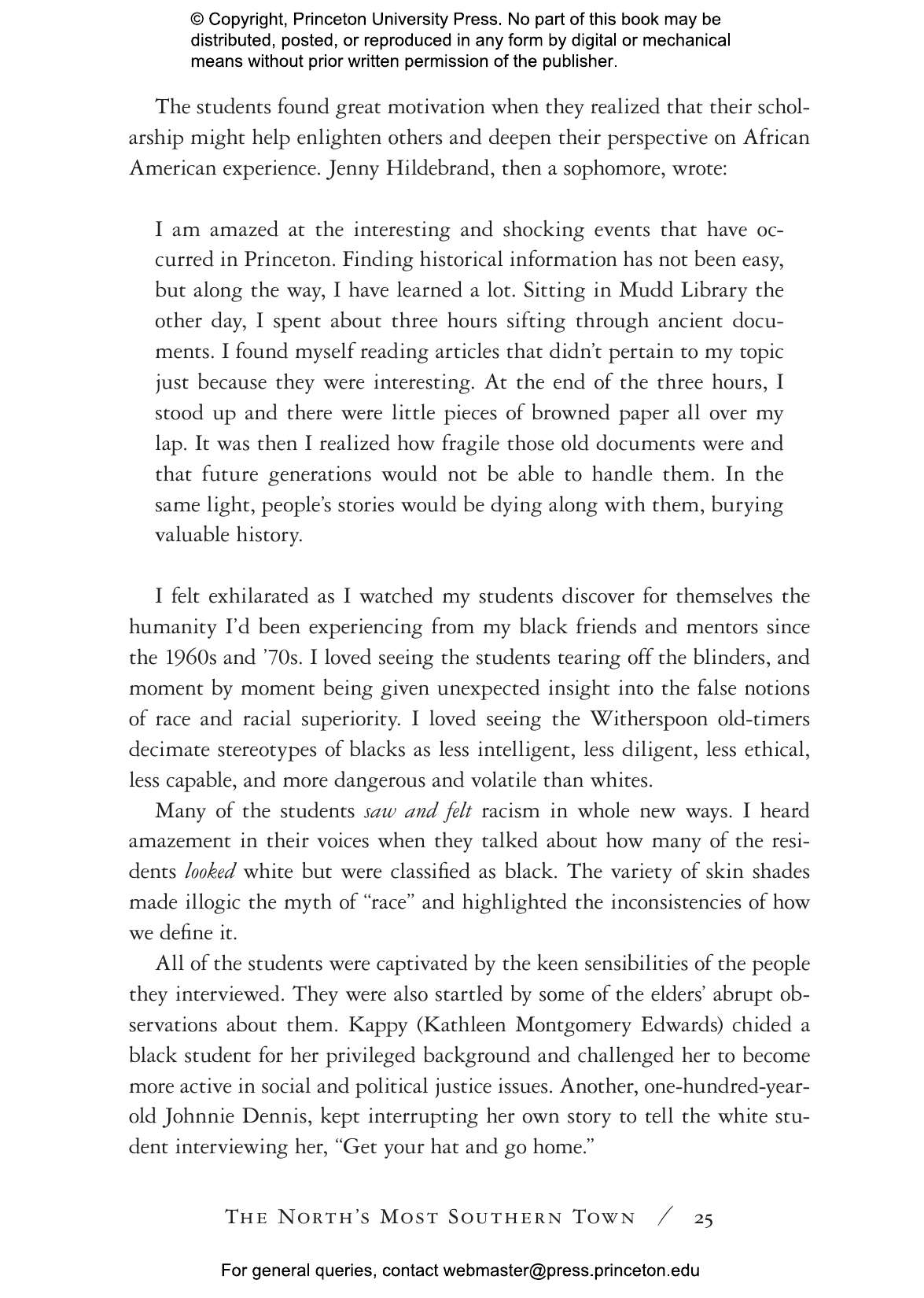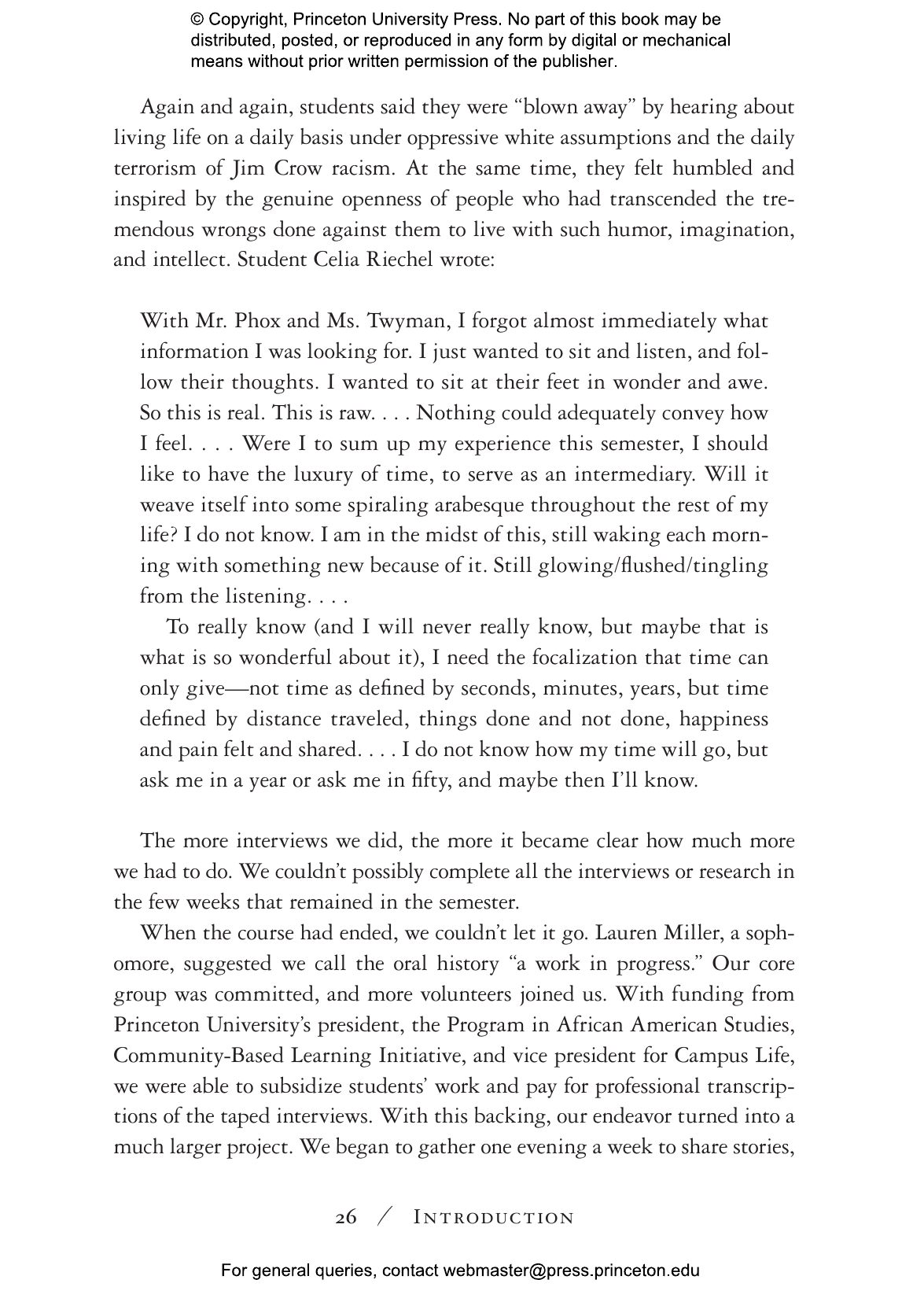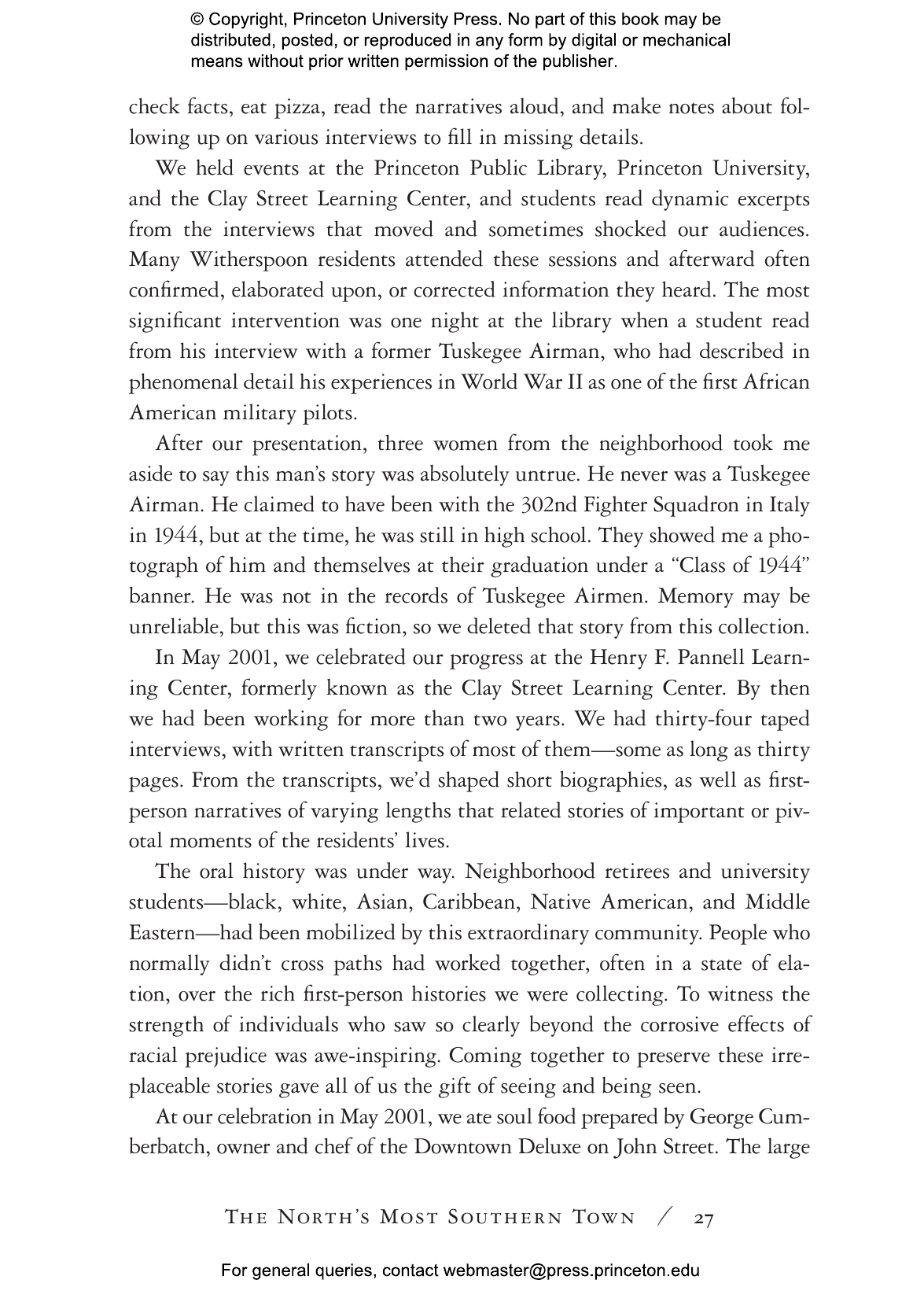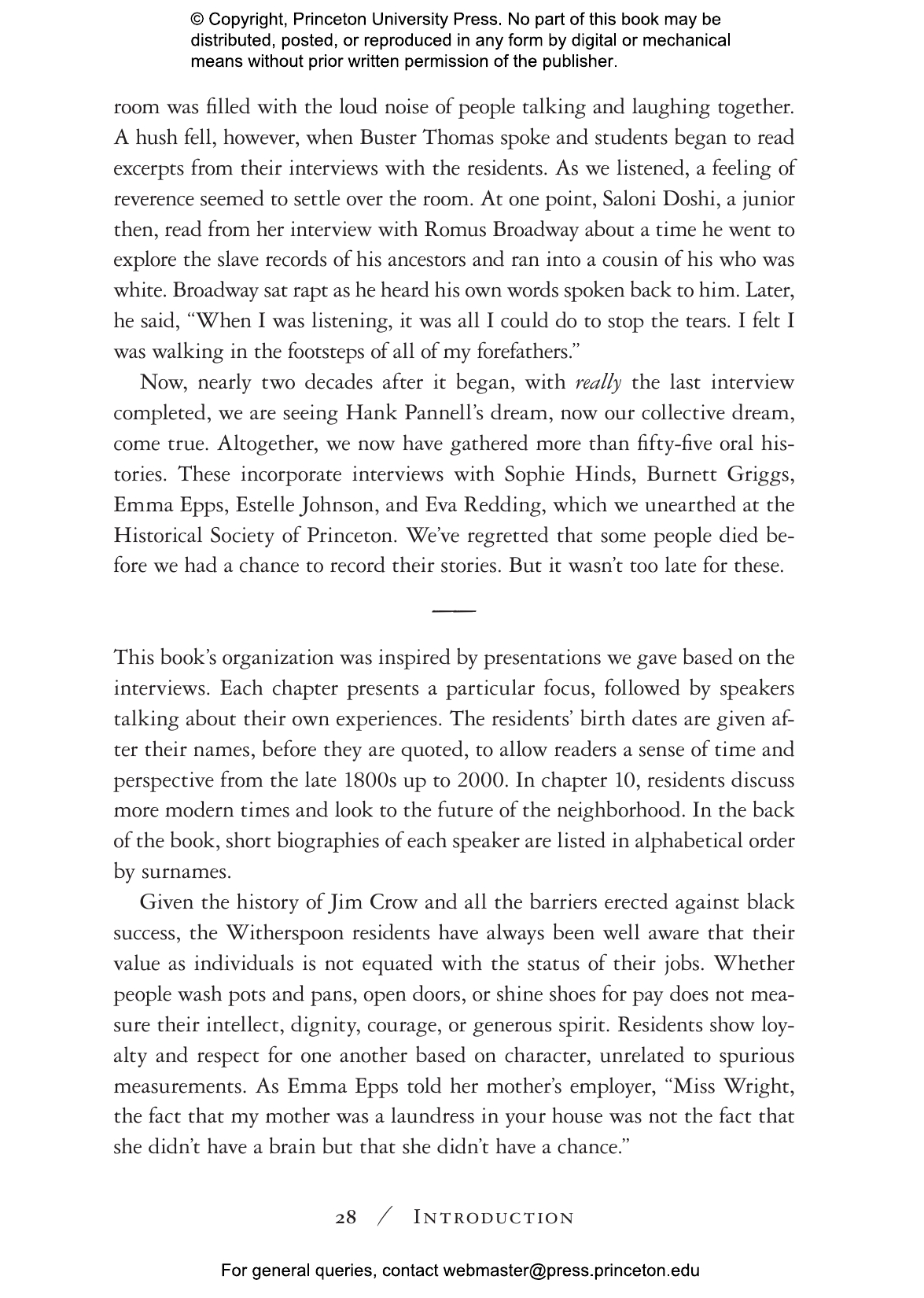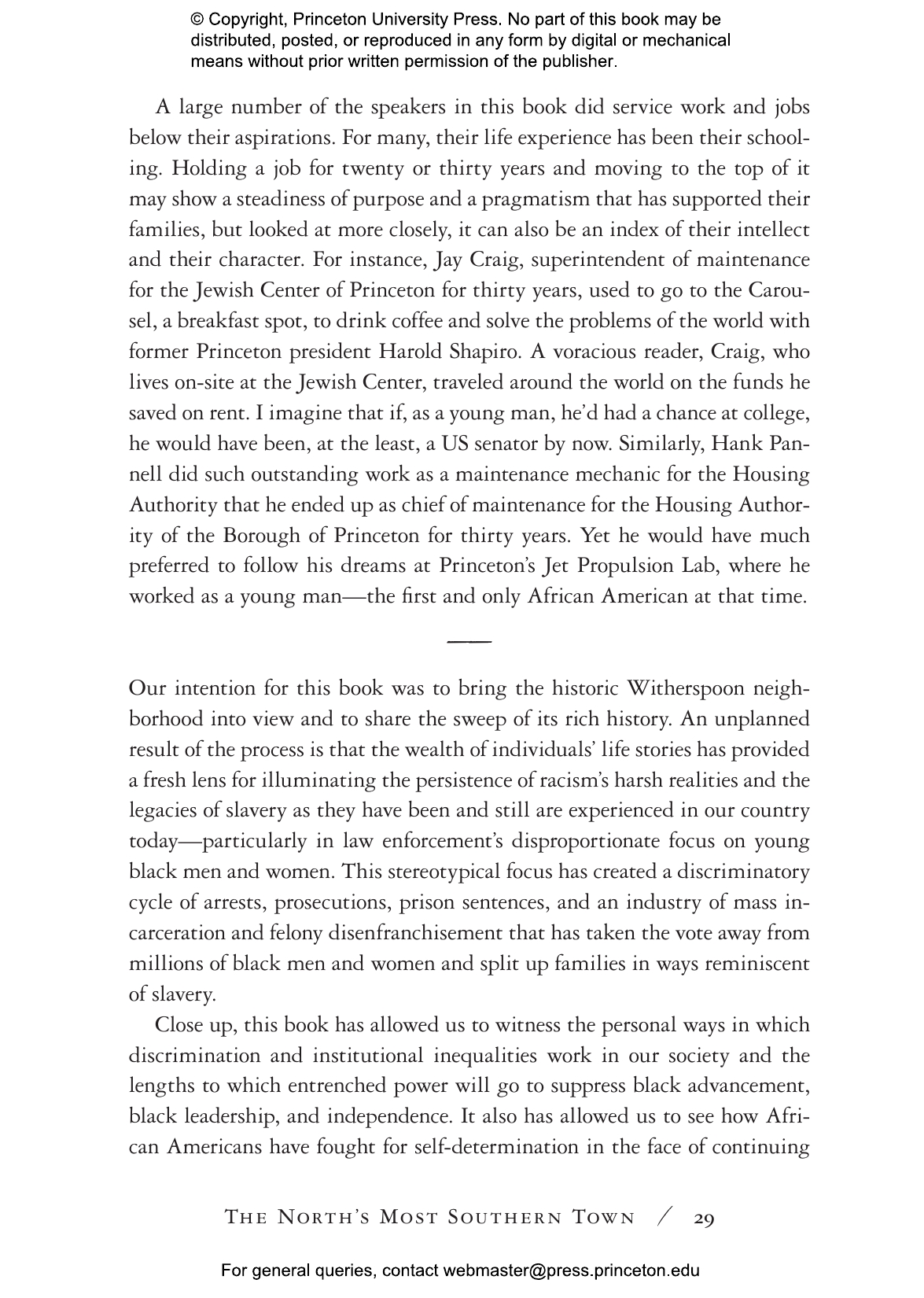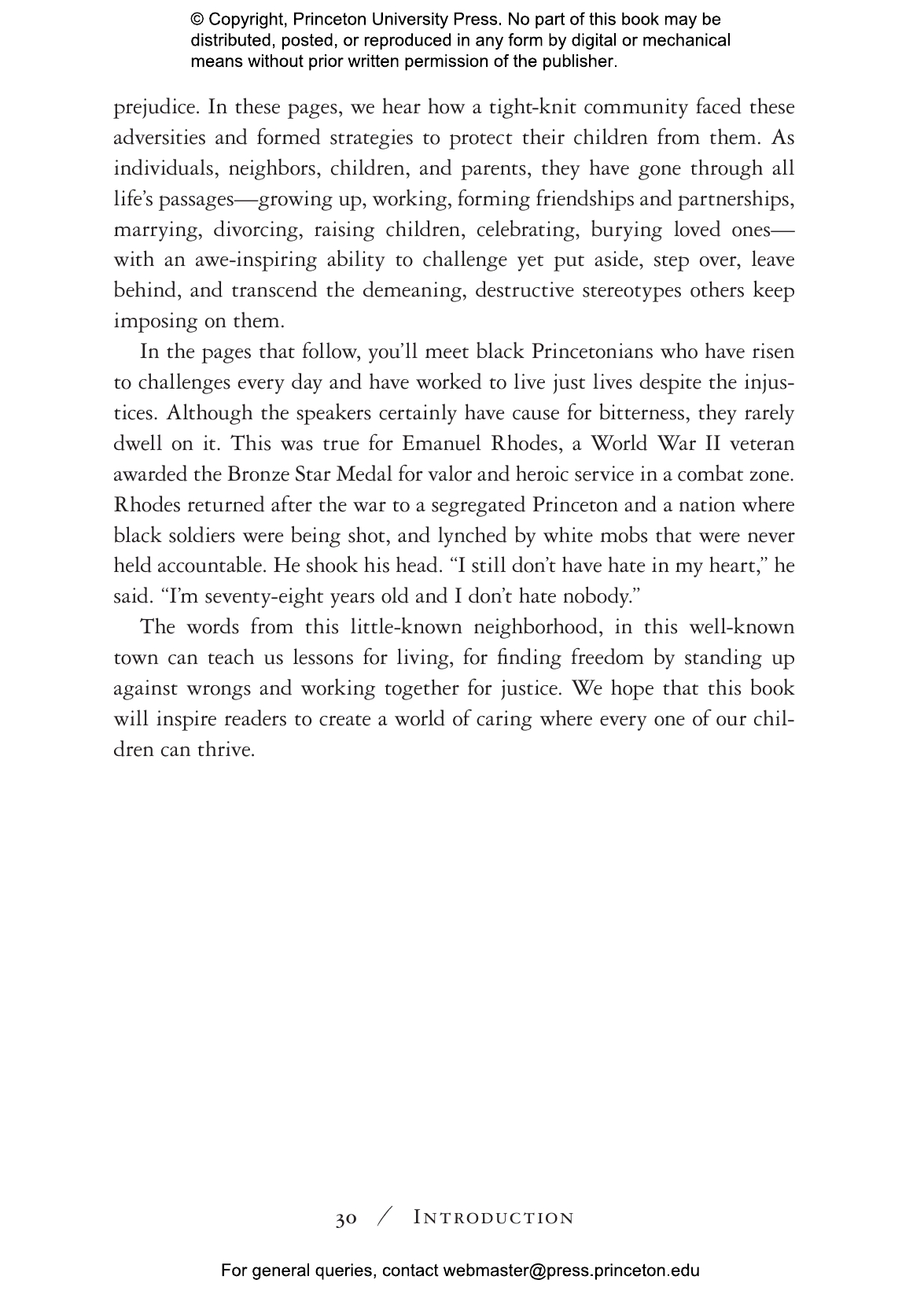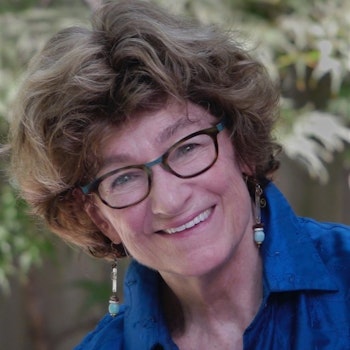I Hear My People Singing shines a light on a small but historic Black neighborhood at the heart of one of the most elite and world-renowned Ivy-League towns‚ÄĒ91Ő“…ę, New Jersey. The vivid first-person accounts of more than fifty Black residents detail aspects of their lives throughout the twentieth century. Their stories show that the roots of 91Ő“…ę‚Äôs African American community are as deeply intertwined with the town and university as they are with the history of the United States, the legacies of slavery, and the nation‚Äôs current conversations on race.
Drawn from an oral history collaboration with residents of the Witherspoon-Jackson neighborhood, 91Ő“…ę undergraduates, and their professor, Kathryn Watterson, neighbors speak candidly about Jim Crow segregation, the consequences of school integration, World Wars I and II, and the struggles for equal opportunities and civil rights. Despite three centuries of legal and economic obstacles, African American residents have created a flourishing, ethical, and humane neighborhood in which to raise their children, care for the sick and elderly, worship, stand their ground, and celebrate life. Abundantly filled with photographs, I Hear My People Singing personalizes the injustices faced by generations of Black 91Ő“…ęians‚ÄĒincluding the famed Paul Robeson‚ÄĒand highlights the community‚Äôs remarkable achievements. The introductions to each chapter provide historical context, as does the book‚Äôs foreword by noted scholar, theologian, and activist Cornel West.
An intimate testament of the Black community’s resilience and ingenuity, I Hear My People Singing adds a never-before-compiled account of poignant Black experience to an American narrative that needs to be heard now more than ever.
Awards and Recognition
- Winner of the 2018 NJSAA Author Award for Popular Non-Fiction, New Jersey Studies Academic Alliance
Kathryn (Kitsi) Watterson is a writer whose award-winning books include Women in Prison (Doubleday) and Not by the Sword (Simon & Schuster). She’s written for magazines, literary journals, and newspapers, including the New York Times and International Herald Tribune. She teaches creative writing at the University of Pennsylvania, in Philadelphia, where she lives and drums.
"An extraordinary and most necessary book, I Hear My People Singing recasts American history as a whole by presenting in their own words the full lives of Black 91Ő“…ęians, lives forged within the utterly everyday Americanness of enslavement, segregation, and insult. This book is so very welcome, now that we are facing up to the realities of white supremacy in even so admirable a place as 91Ő“…ę. Thank you, Kathryn Watterson, for letting us hear from these 91Ő“…ęians so long behind the veil."‚ÄĒNell Irvin Painter, author of The History of White People
"I Hear My People Singing is an excellent model for teaching students how to engage with the members of their surrounding African American community and learn the history from those who lived it.‚ÄĚ‚ÄĒJohn W. Franklin, Cultural Historian Emeritus, National Museum of African American History and Culture, Smithsonian Institution
"Kathryn Watterson has devoted her entire life as a writer to issues of justice. From the American prison system to women's rights and the stories of people of color, few writers in this country have captured the humanity and heroism of the disenfranchised like Watterson. I Hear My People Singing stands alone in its telling of stories untold, stories essential to understanding the unwritten history of America. At this moment in time, this beautiful book is essential reading."‚ÄĒEmily Mann, Artistic Director, McCarter Theatre
"This is a beautifully conceived and executed book, one of real significance. The continuity of challenges that Black 91Ő“…ęians face, including the mixed blessings of desegregation, despite significant assaults of racism, resonates so well with our current struggles throughout the United States."‚ÄĒWilbert H. Ahern, University of Minnesota, Morris
"I Hear My People Singing adds to the growing collection of studies and memoirs of African Americans around elite white colleges and universities. Because many of these volumes have focused on the eighteenth and nineteenth centuries, not the twentieth, this book will extend their scope and value. This is all the more the case because the book at once reflects and reflects on the progressive racial integration of 91Ő“…ę over the past half century."‚ÄĒDavid Moltke-Hansen, former President, Historical Society of Pennsylvania
